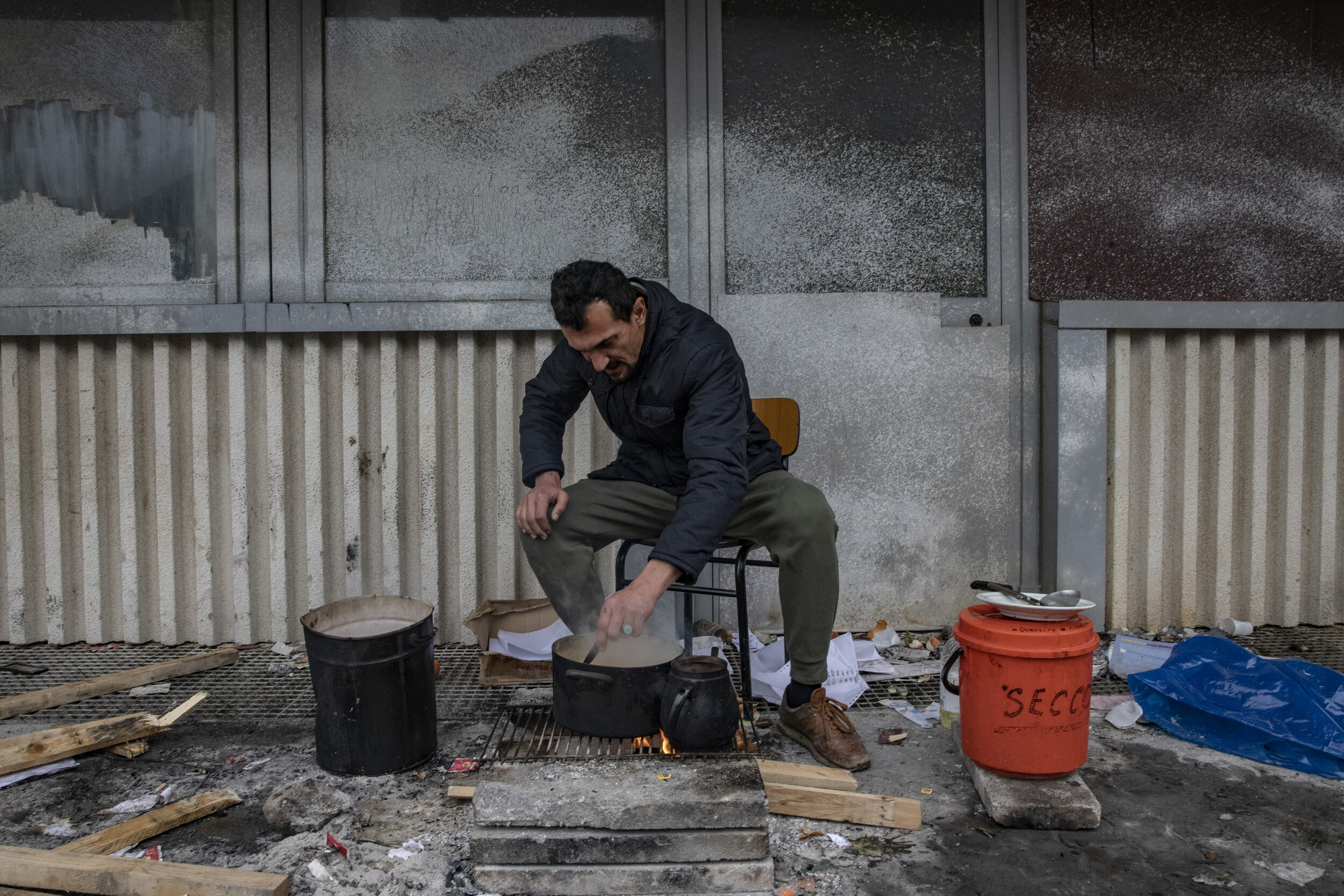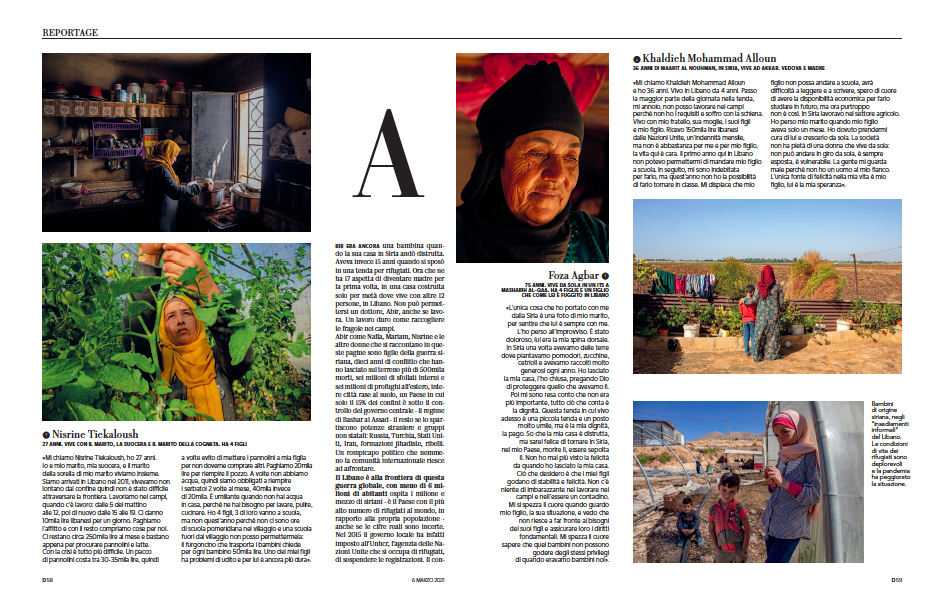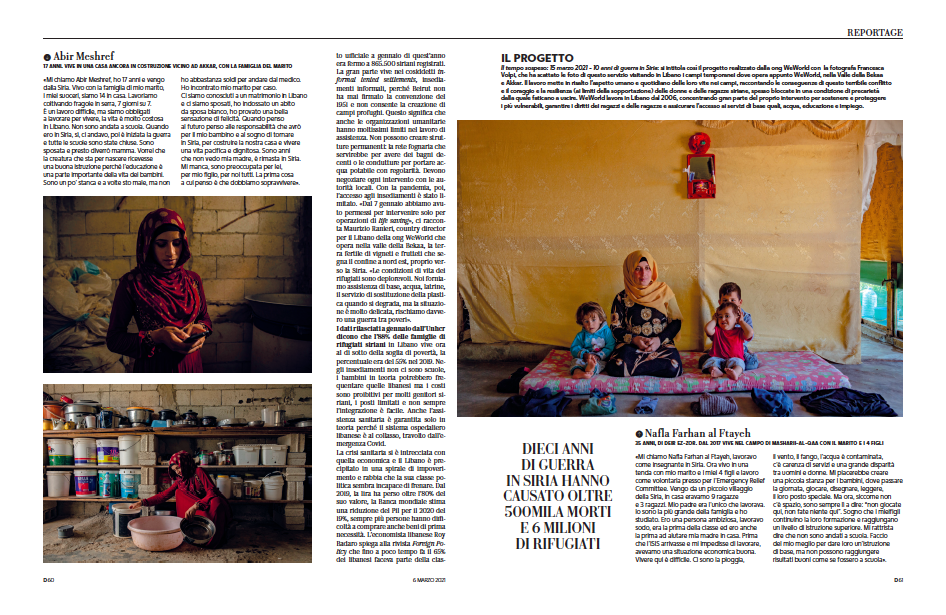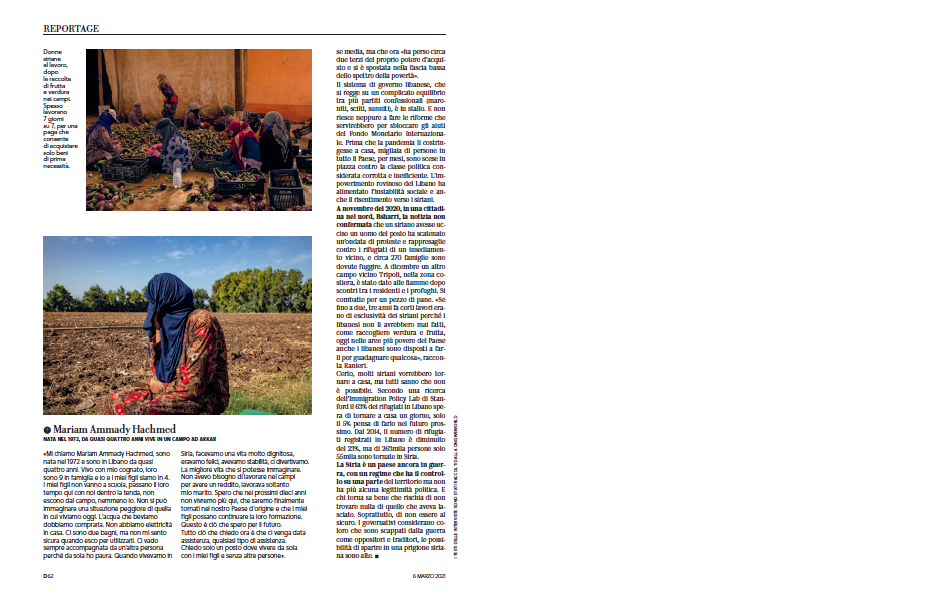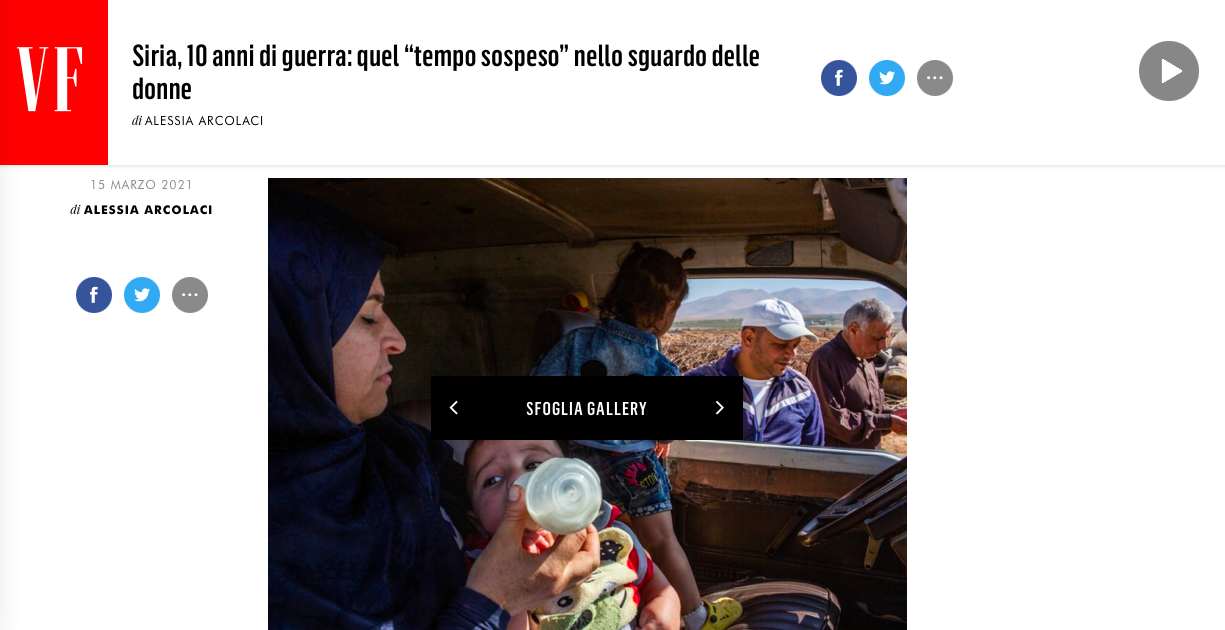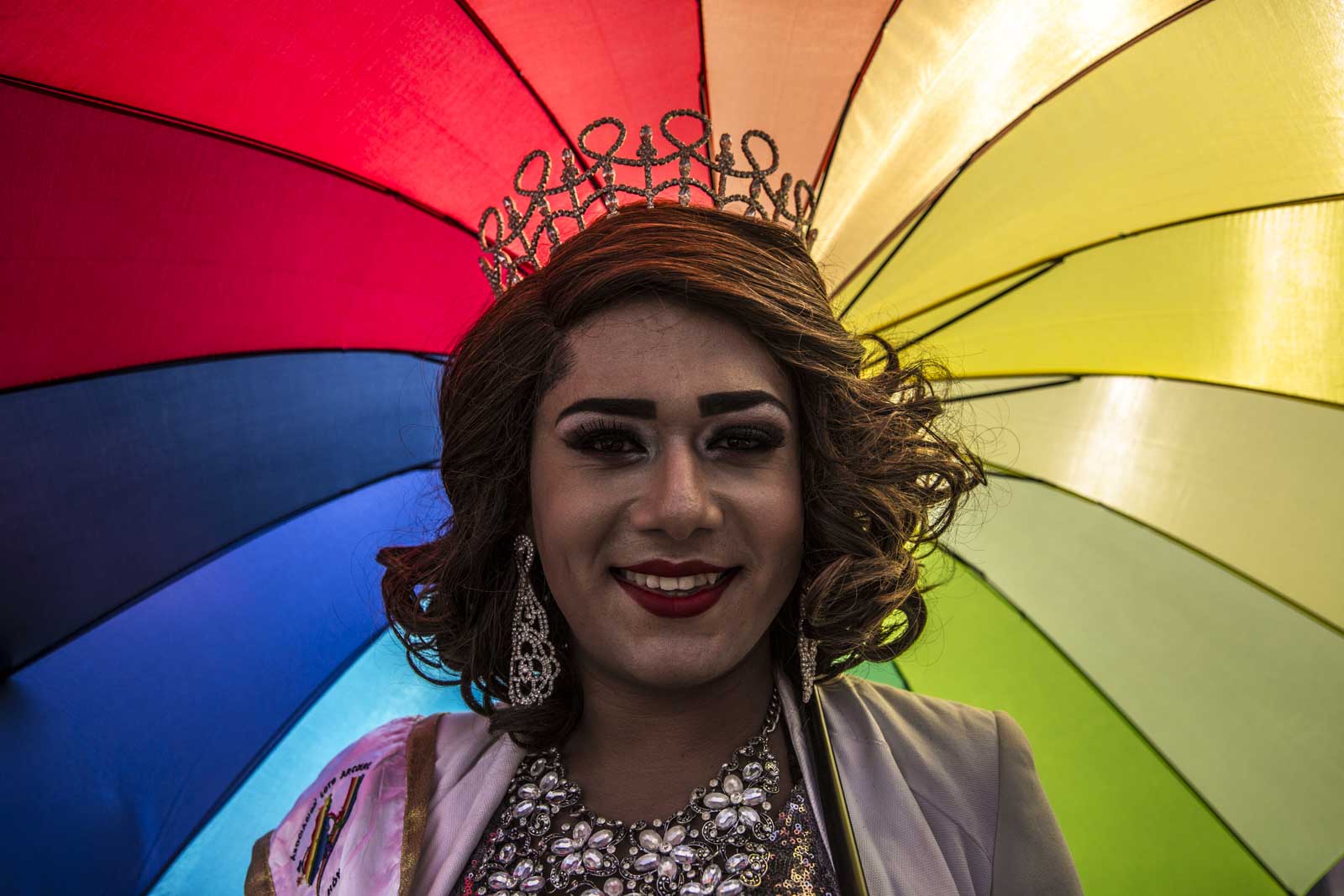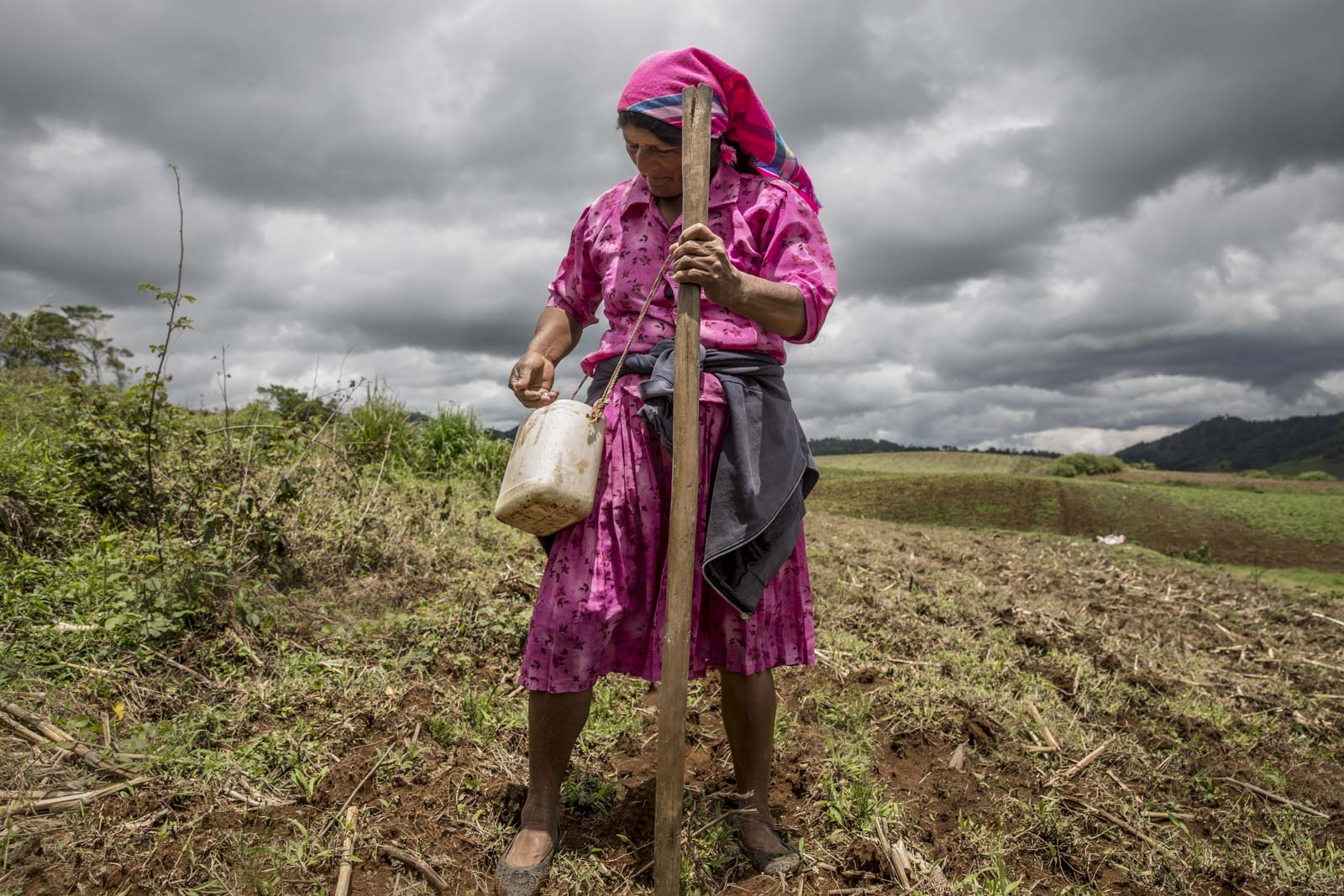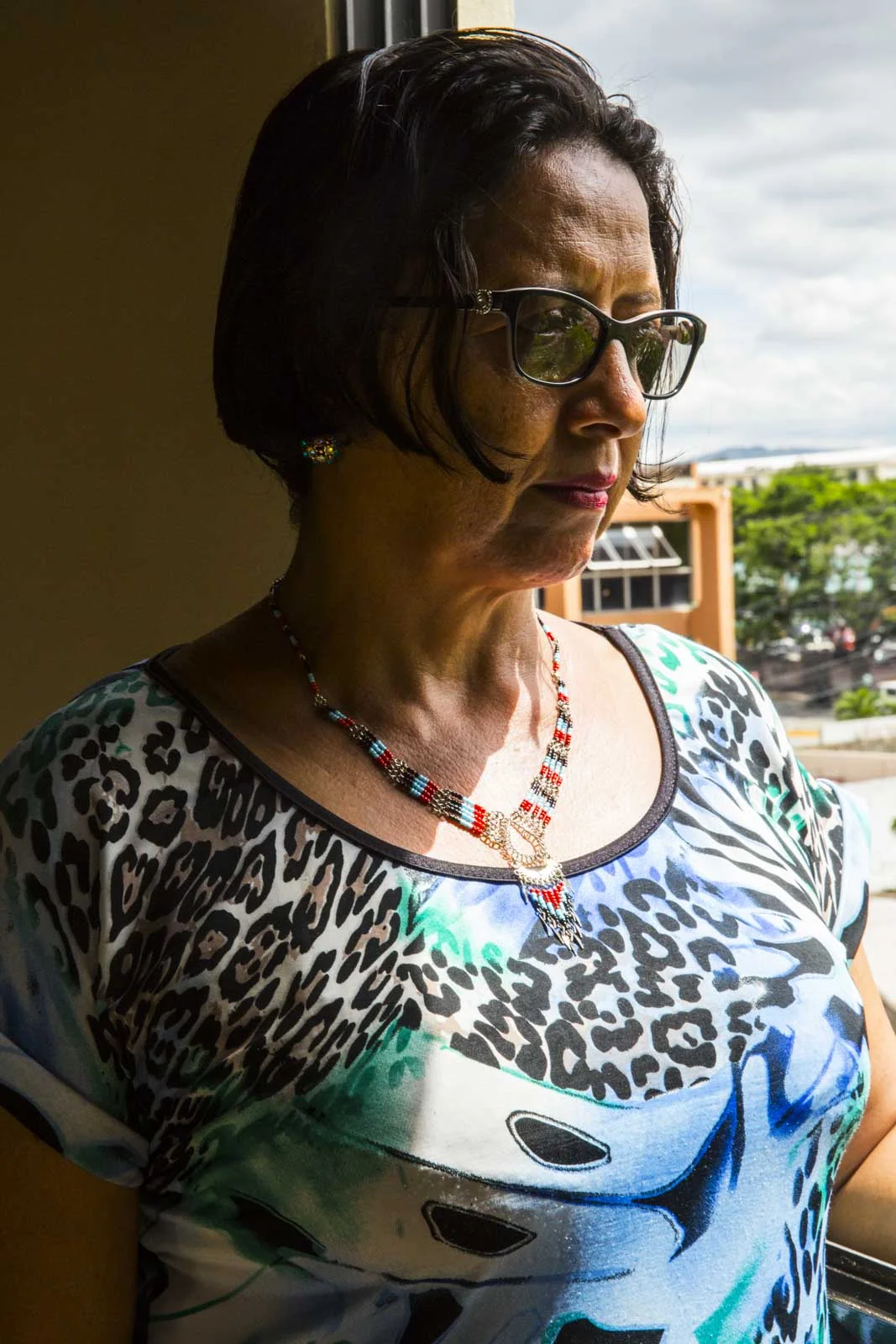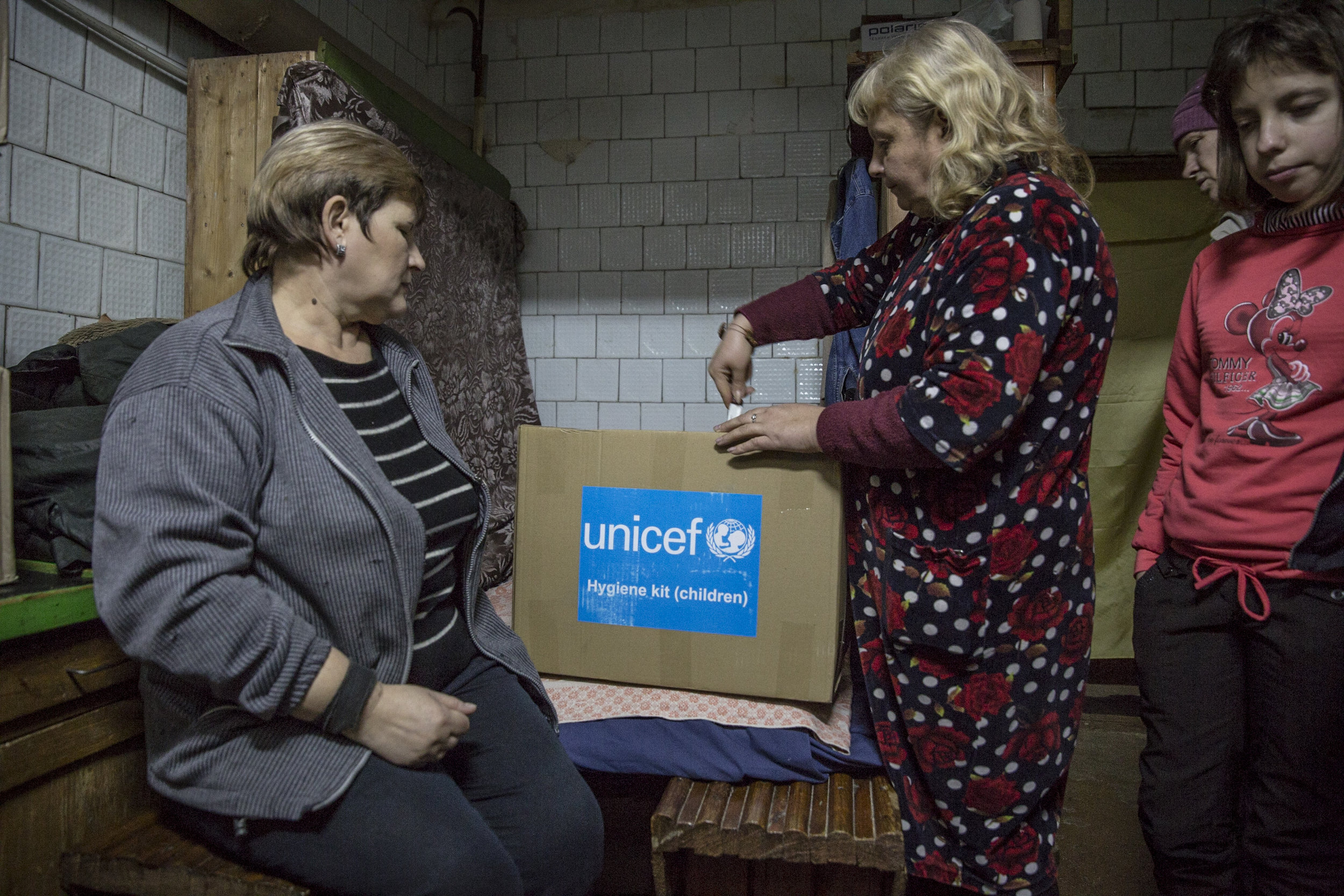Samples of projects done working in cooperation with humanitarian organizations, for the realization of advocacy campaigns through exhibitions, calendars, books, reportage for the press.
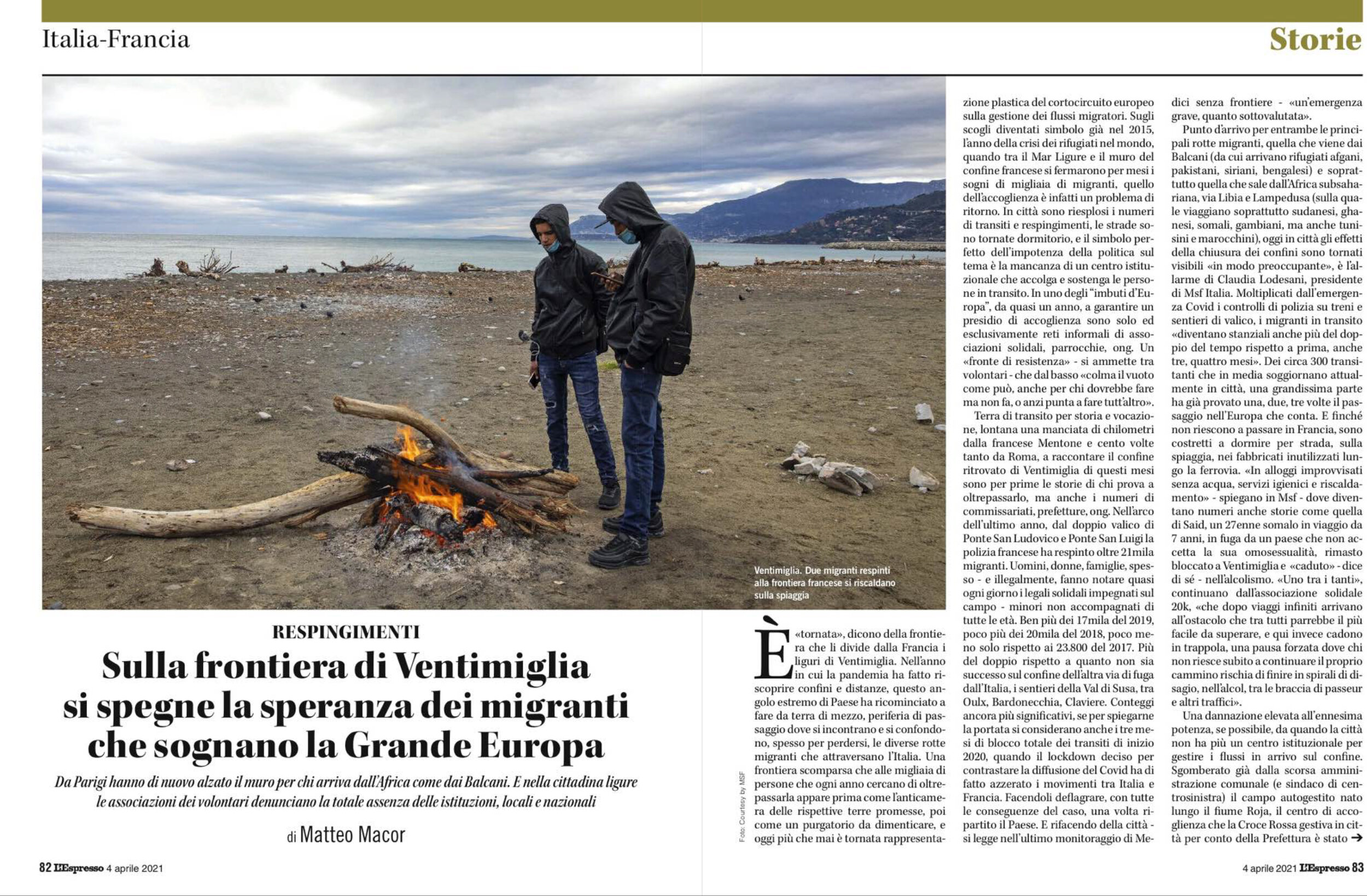
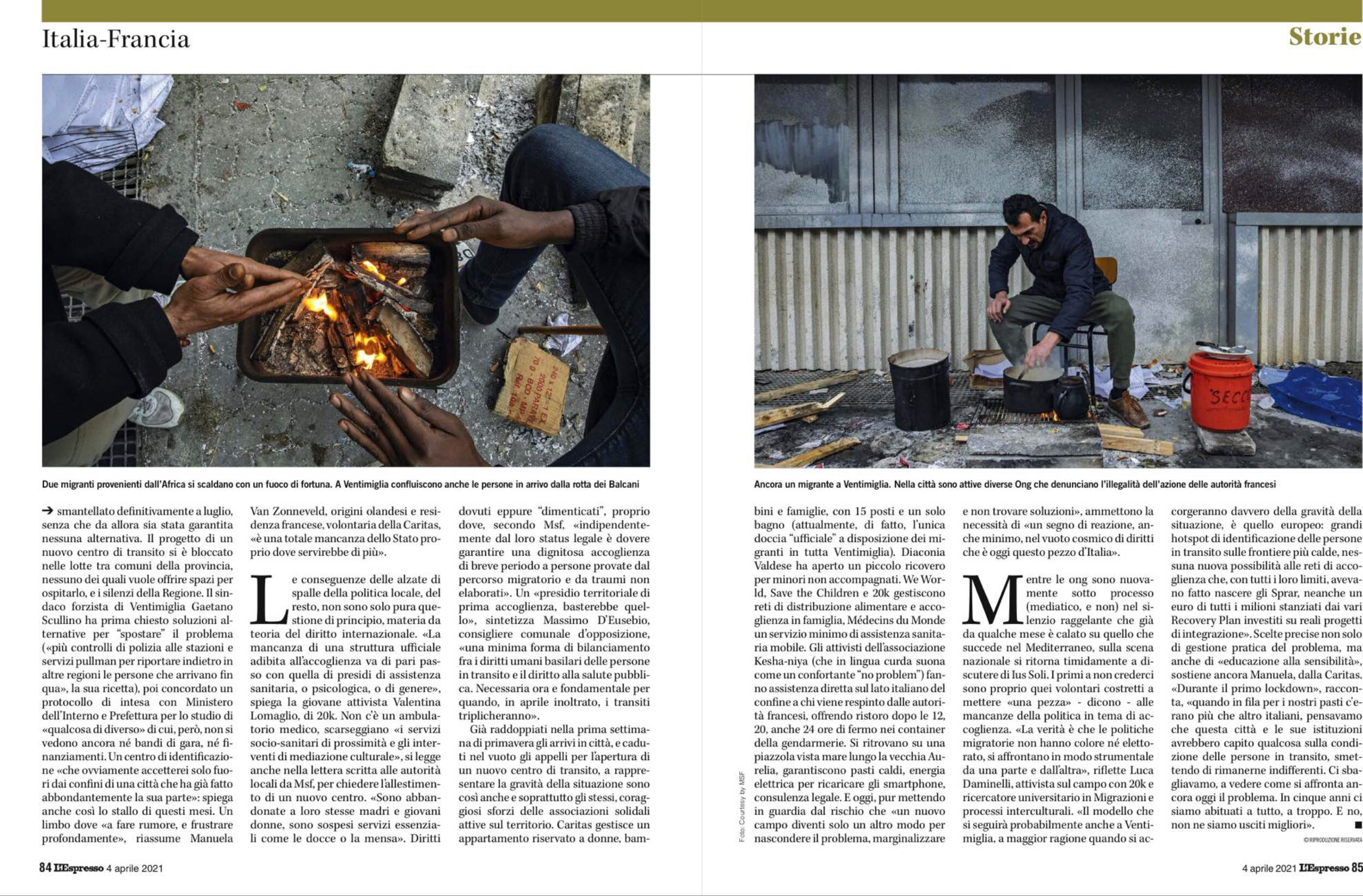
for WE WORLD / GVC , LEBANON 2020.
read more here: www.weworld.it
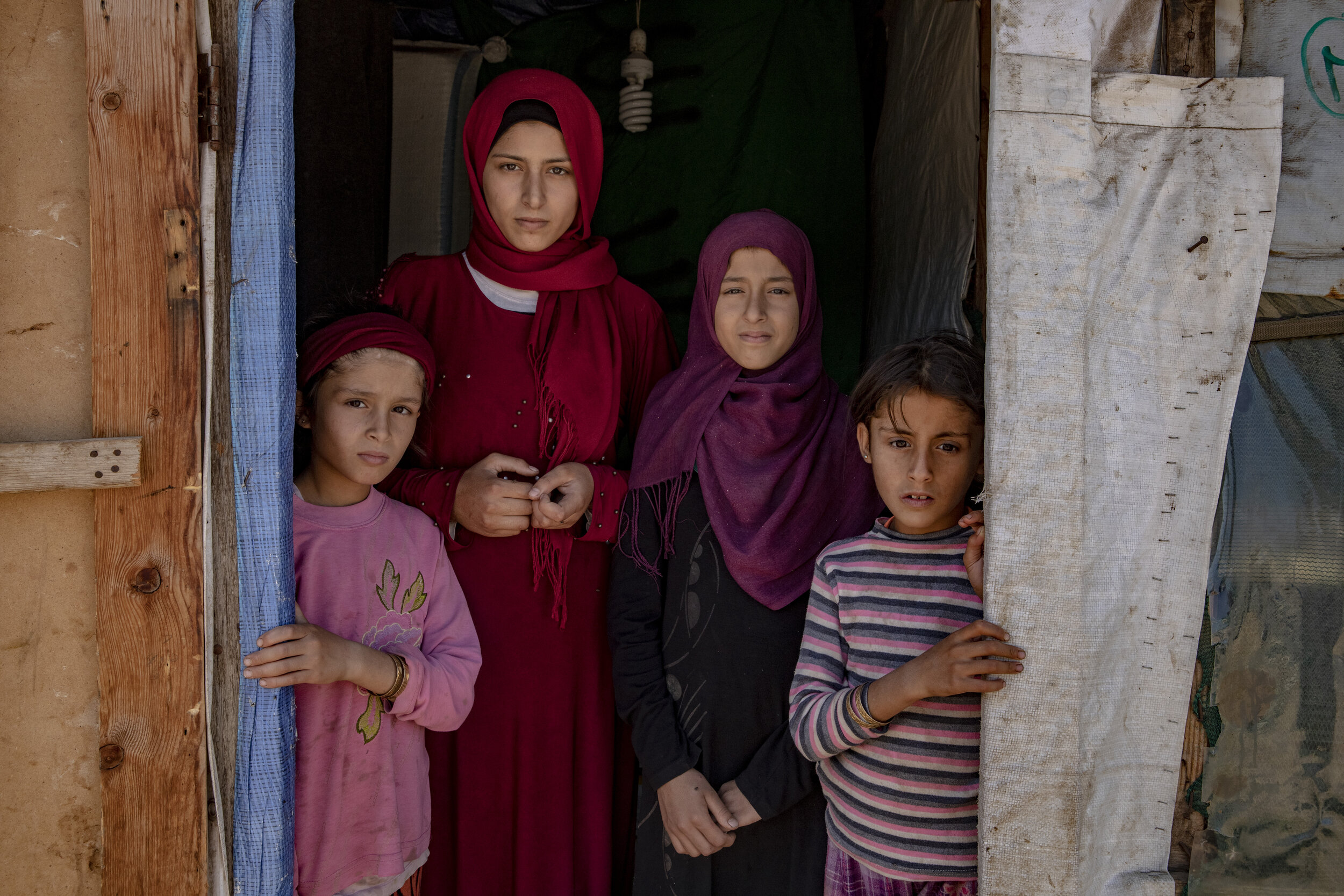
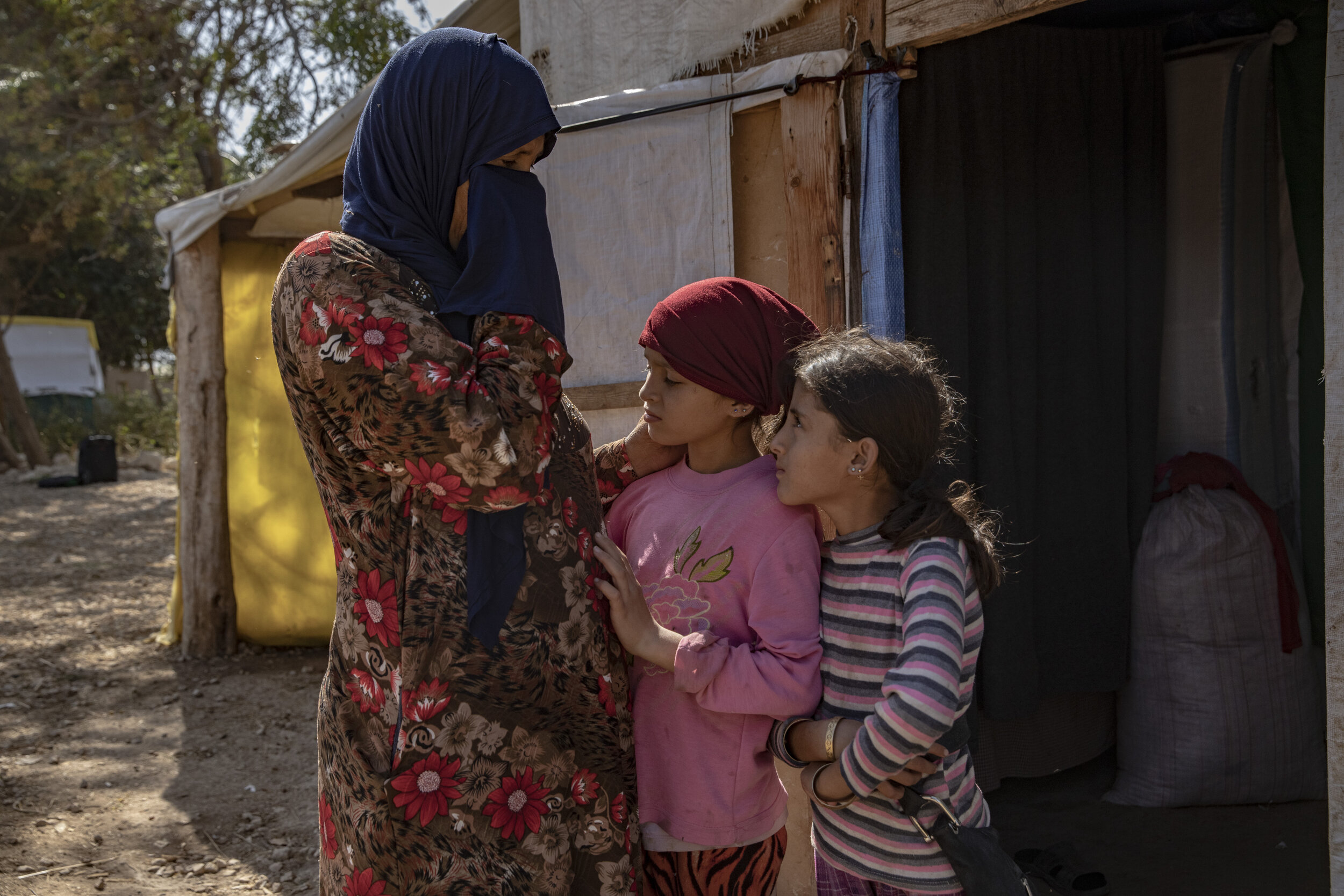
My name is Mariam Ammady Hachmed, I was born in 1972 and I have been in Lebanon for nearly 4 years. I have two daughters and one boy, of 7 and 10. They don’t go to school and this saddens me, because they will suffer from it in the future by being illiterate. We don’t have electricity at home and the drinking water we have to buy it. When we lived in Syria, we had a very decent life, we were so happy, we had stability, we enjoyed tees. I had a customized house in Syria, I had, you can say, the best life ever. We were joyful, there was a lot of laughter, I didn’t need to work I the fields to get an income, my husband only used to work, so it was a better life there. For the coming ten years I hope that we are not living here anymore, we returned to our home country and my children ae able to continue their education. That’s what I hope for the future.
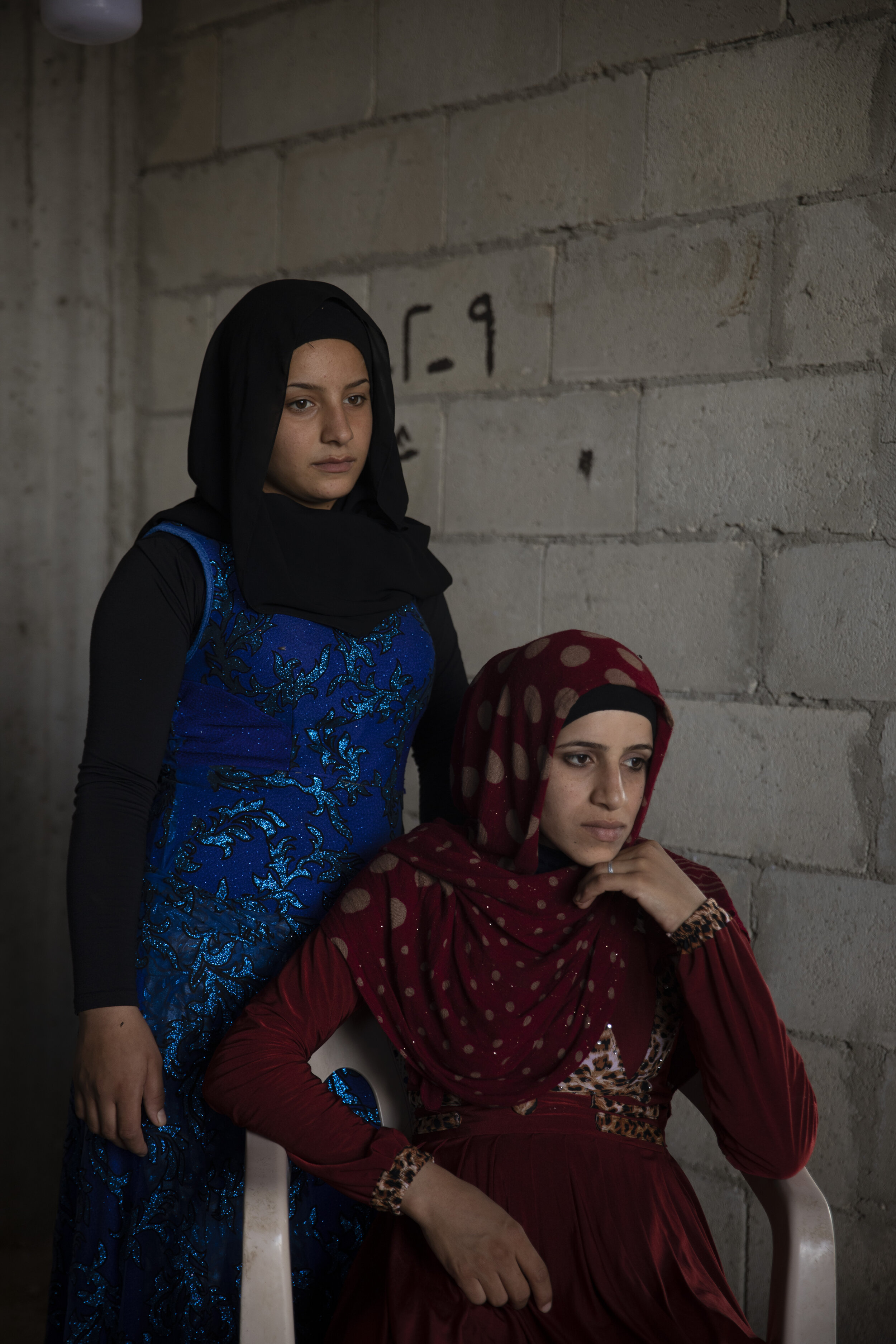
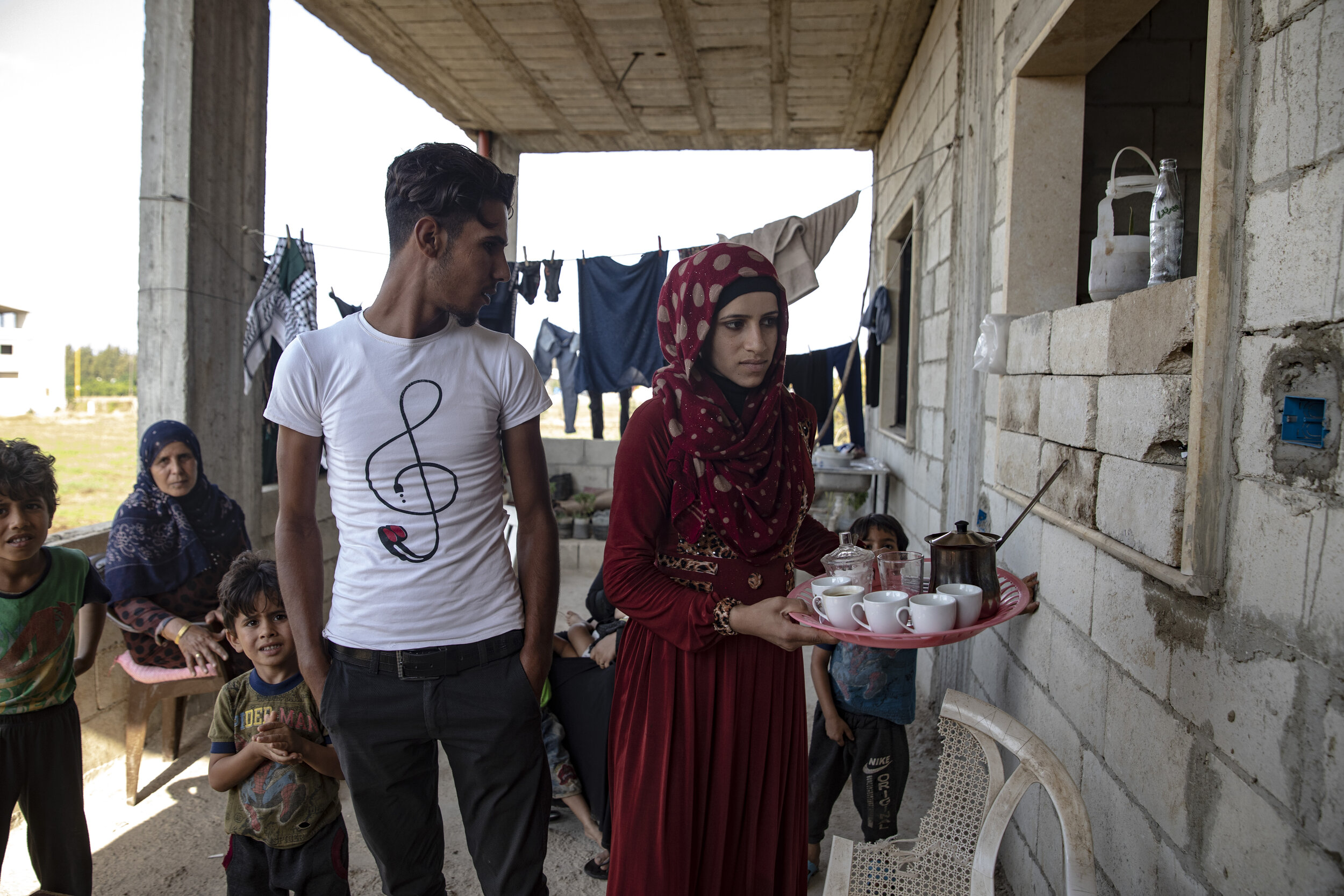
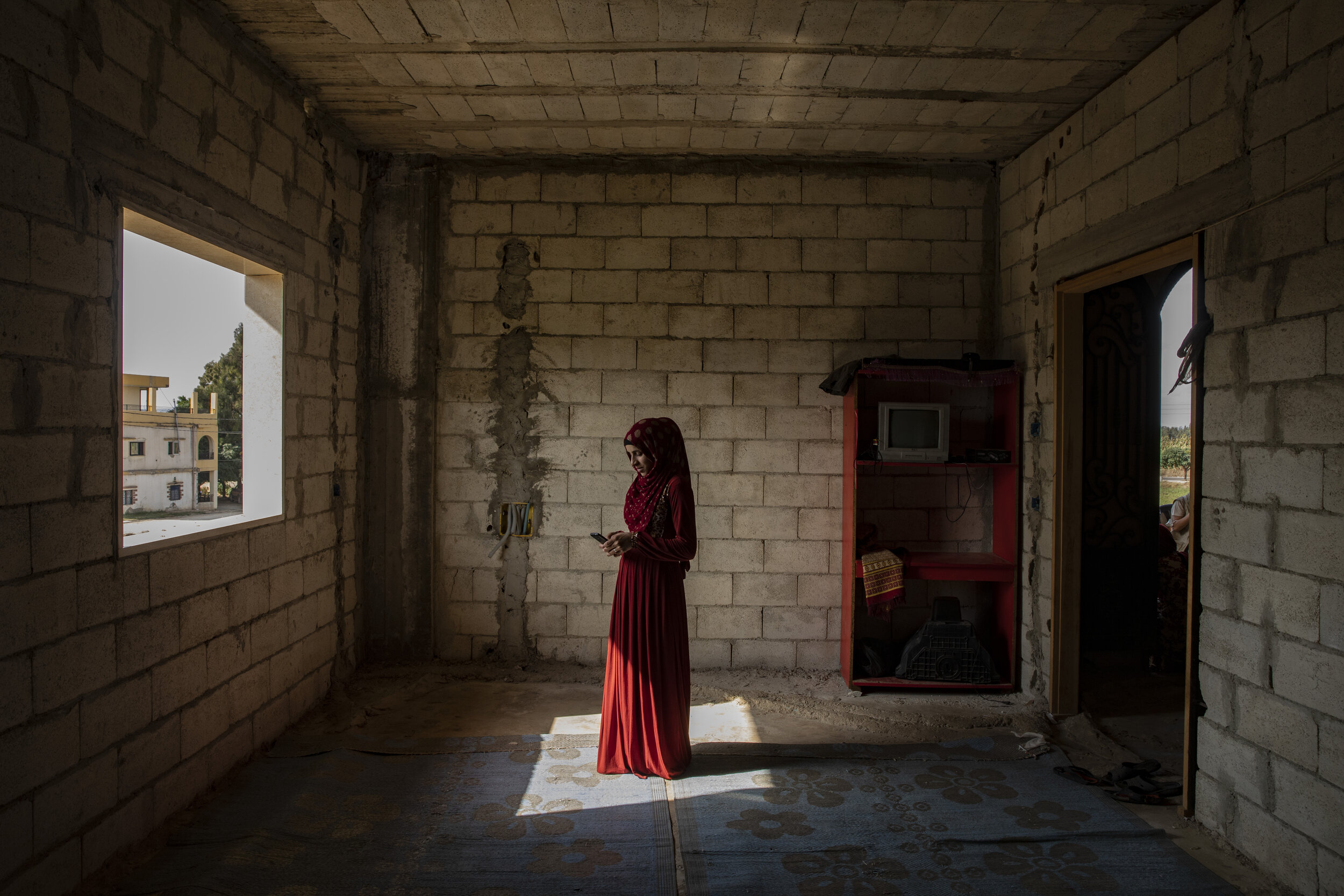
My name is Abir Meshref , I’m 18 years old and I come from Syria. I have been in Lebanon for eight years now. I live with my parents in law, , there are 14 persons as a total inside this house. I work in greenhouses of strawberries everyday. I wish I could go back to Syria, but there there’s a war, there’s destruction, life is expensive and it’s also the case here in Lebanon, life became very expensive. We are on the same boat as the Lebanese here.
Thank God we had a decent life [in Syria], but then the war came and it erupted and destroyed all our memories and beautiful hopes and dreams. When we were in Syria and the war started, of course our parents tried to explain for us the situation. They said it was a temporary war, so we wouldn’t be that afraid of it and when we moved here to Lebanon, they also said that it was a temporary period and then, we would return back to Syria. Of course, none of that happened until today. My mother didn’t come to Lebanon, because she refused to leave Syria. So, even when we wanted her to come back, the war became stronger and right now, if she wants to comeback, she does not have the means to do that.
It has been years that I don’t see her, I only contact her once a month via phone. I used to love going to school in Syria, because I love education and I love to reach higher places in the future. But now I’m married and I will have a baby soon so the plan of going back to school one day, I got it out of my thoughts. But I hope that my baby will go to school and receive a good education. But, if the situation remains as it is today, how am I going to make him live a decent life?
I am happy and scared at the same time of my first experience as a mother. I went to the hospital in Beirut lately, unfortunately the treatment was expensive and we did not have enough money for that. So, I did not continue my treatment and I returned back home.
Right now, I feel a little bit down, I feel sick and tired but maybe one day, when we will have enough money, I will go again to the doctor in order to continue my treatment.
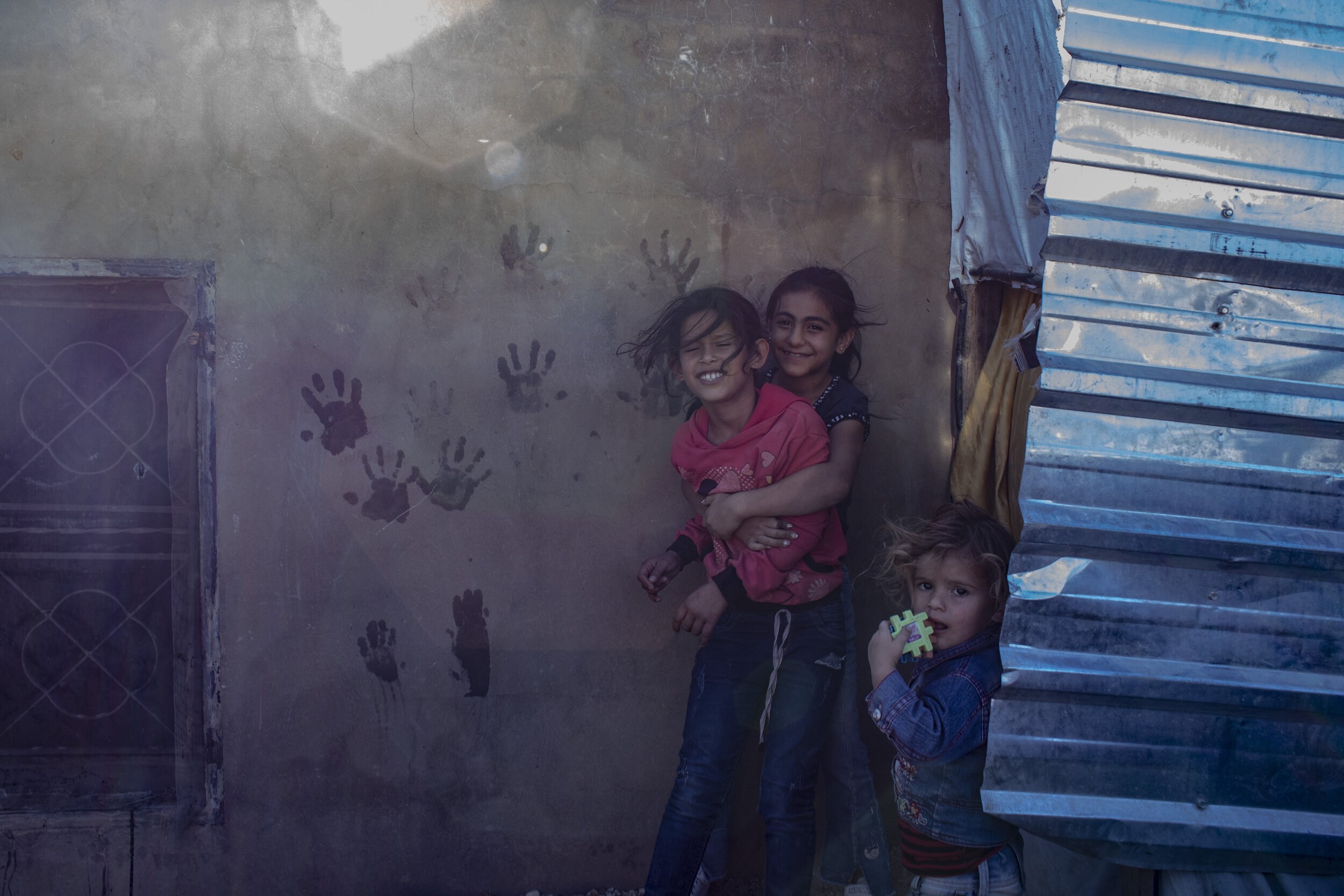
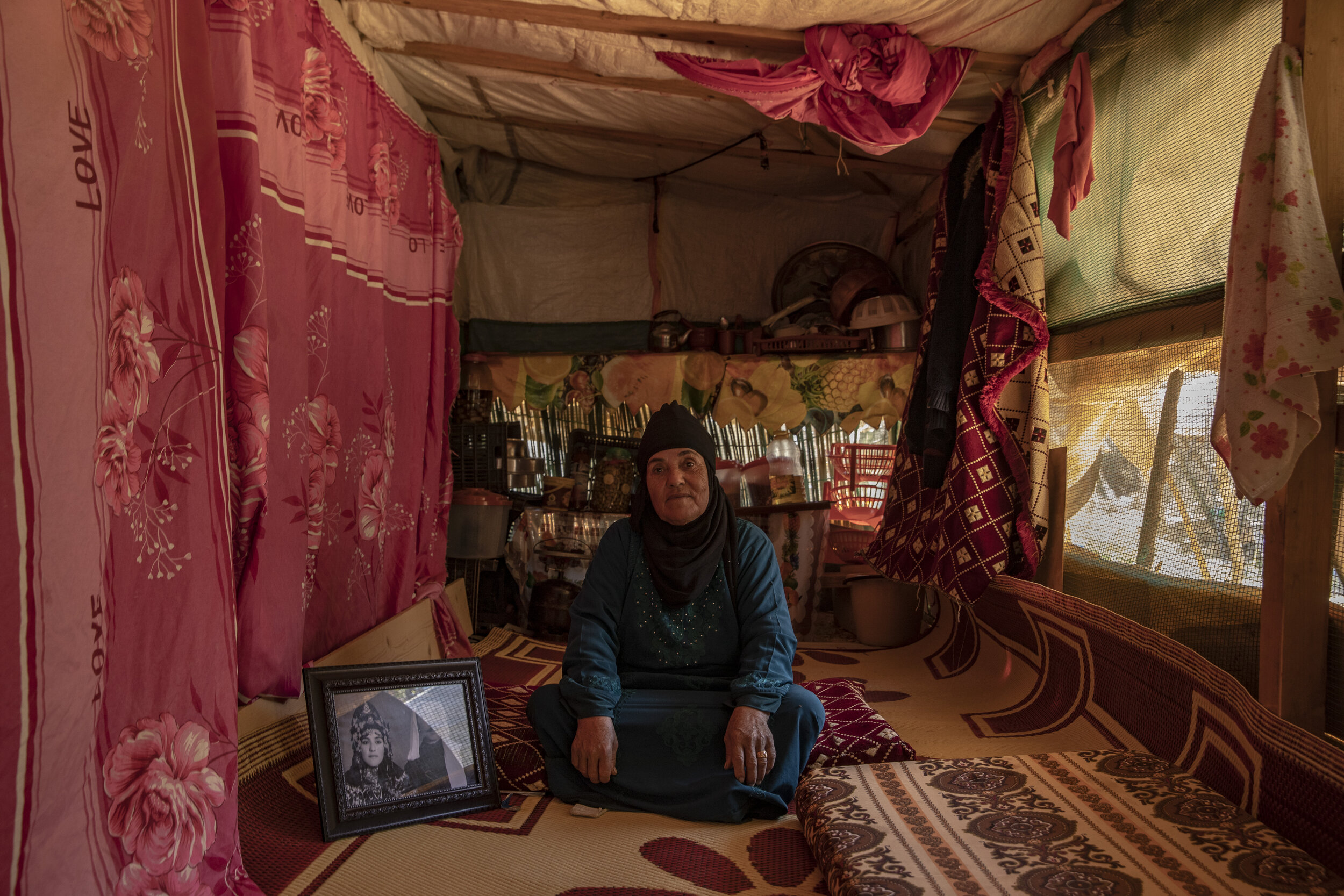
My name is Foza Agbar. The only thing that I took with me from Syria was actually a picture. I had it enlarged to put inside my tent. It’s a memory from my husband, to feel that he is always with me and I always remember him. I had a very big apartment that was furnished in Syria, but all of that does not count anymore. I left Syria with this small picture and with the clothes that I had on and that’s it.I locked down my house and I left it saying: “please God, do not waste all the efforts that we did, all the money that we paid, in order to reach a decent life”, but then I felt that it was not important anymore. All that mattered was my dignity and children. When I left Syria, my village was not being bombed yet, the surrounding ones were being bombed and there were air raids and so on, but the first ones who left were my children. My husband died before the war. Even-though the bombing hadn’t started yet, I felt not safe and shortly after decided to leave anyway and follow them to Lebanon. When I was told that my house had been destroyed during the war, I just threw away the keys and that’s it. I’ve never seen happiness since I left my home back in Syria, I don’t have any good, happy memory since then. They didn’t give us yet the green light to go back to Syria yet, at least where I come from. What I wish for myself, I wish it also for my neighbors and my relatives, so if I want to go back there, I want them also to go back with me.Back in Syria, we used to have lands where we used to plant tomatoes, zucchini, cucumber.I only pray for God that I’ll die there and I will be buried there, in my homeland, Syria.
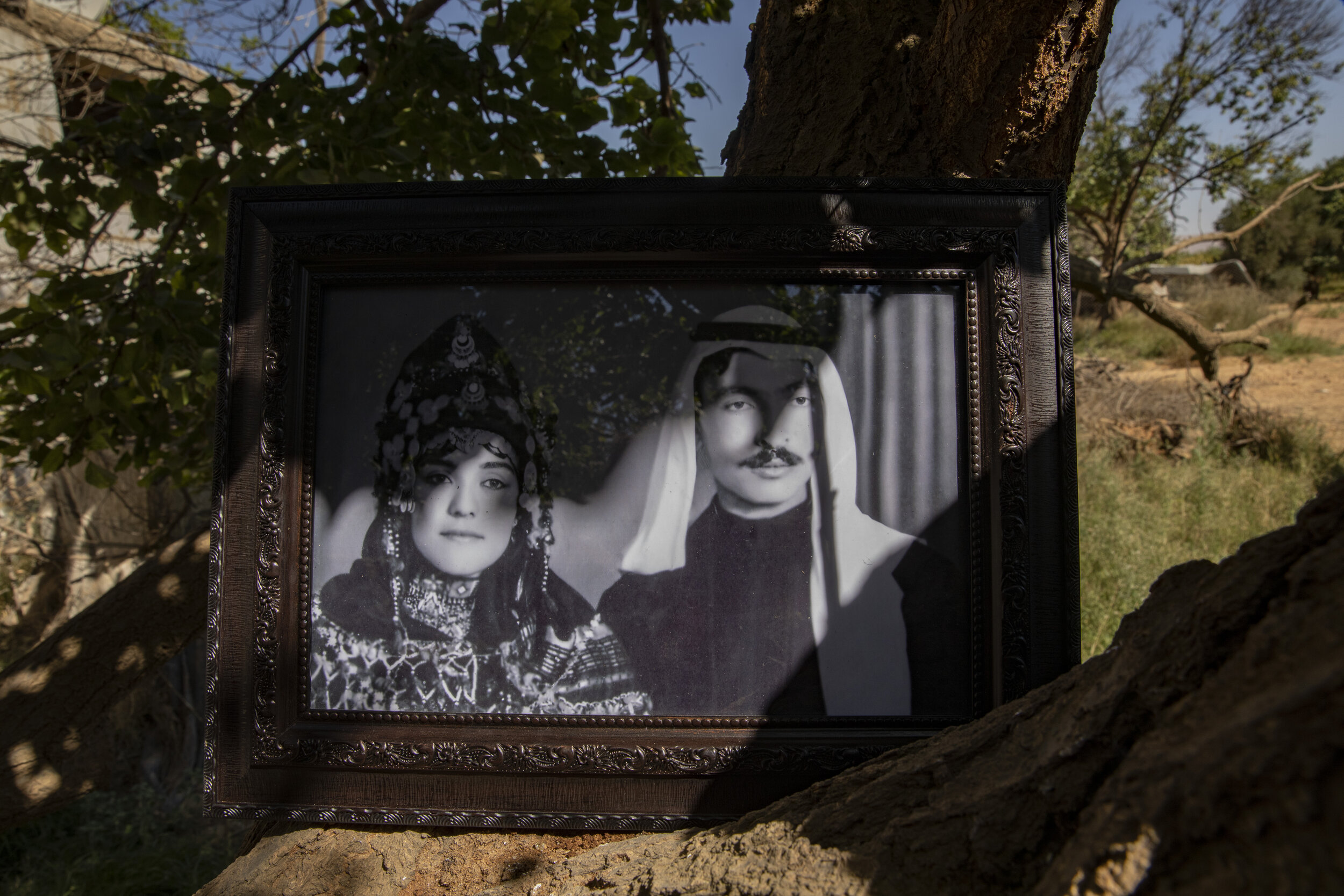
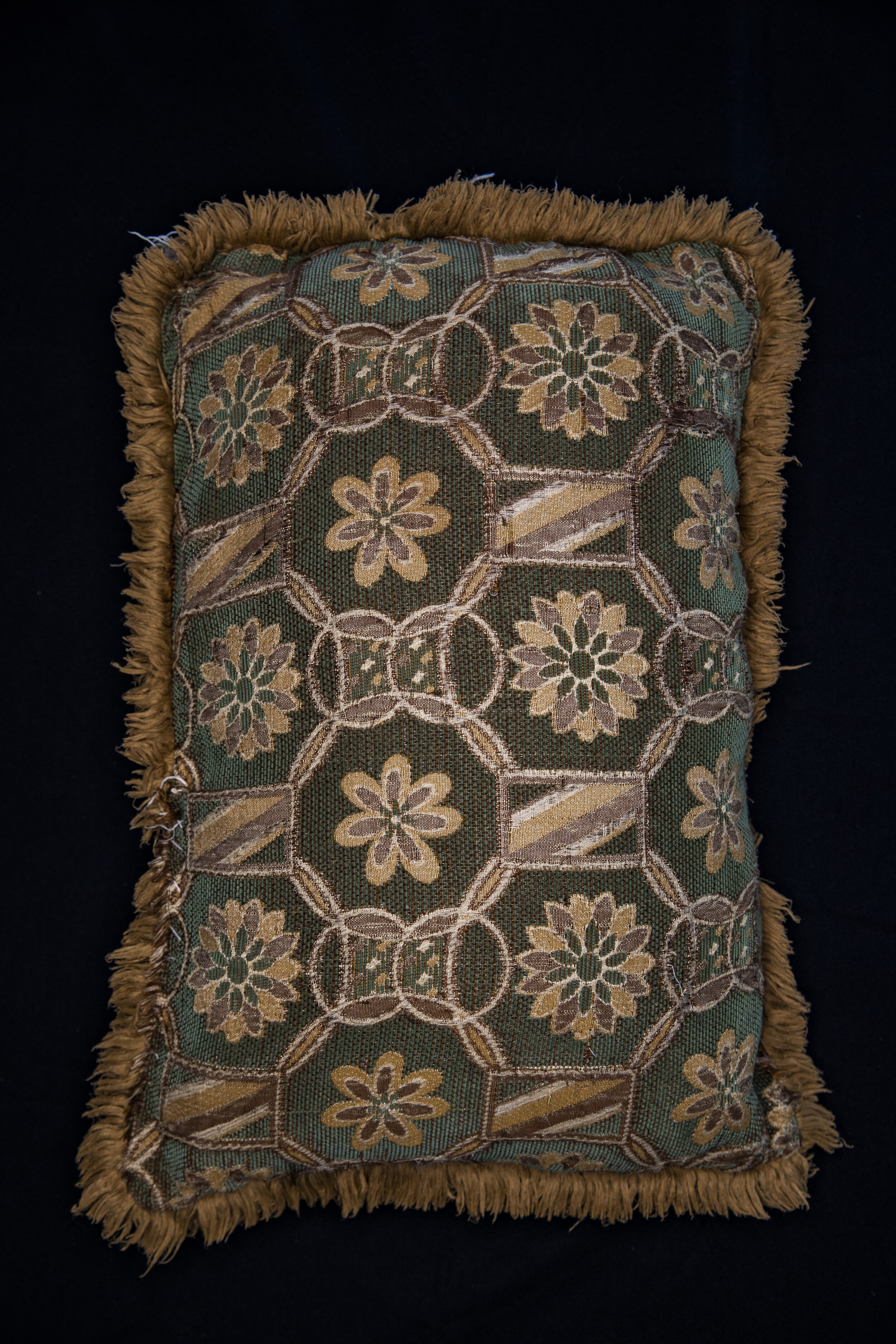
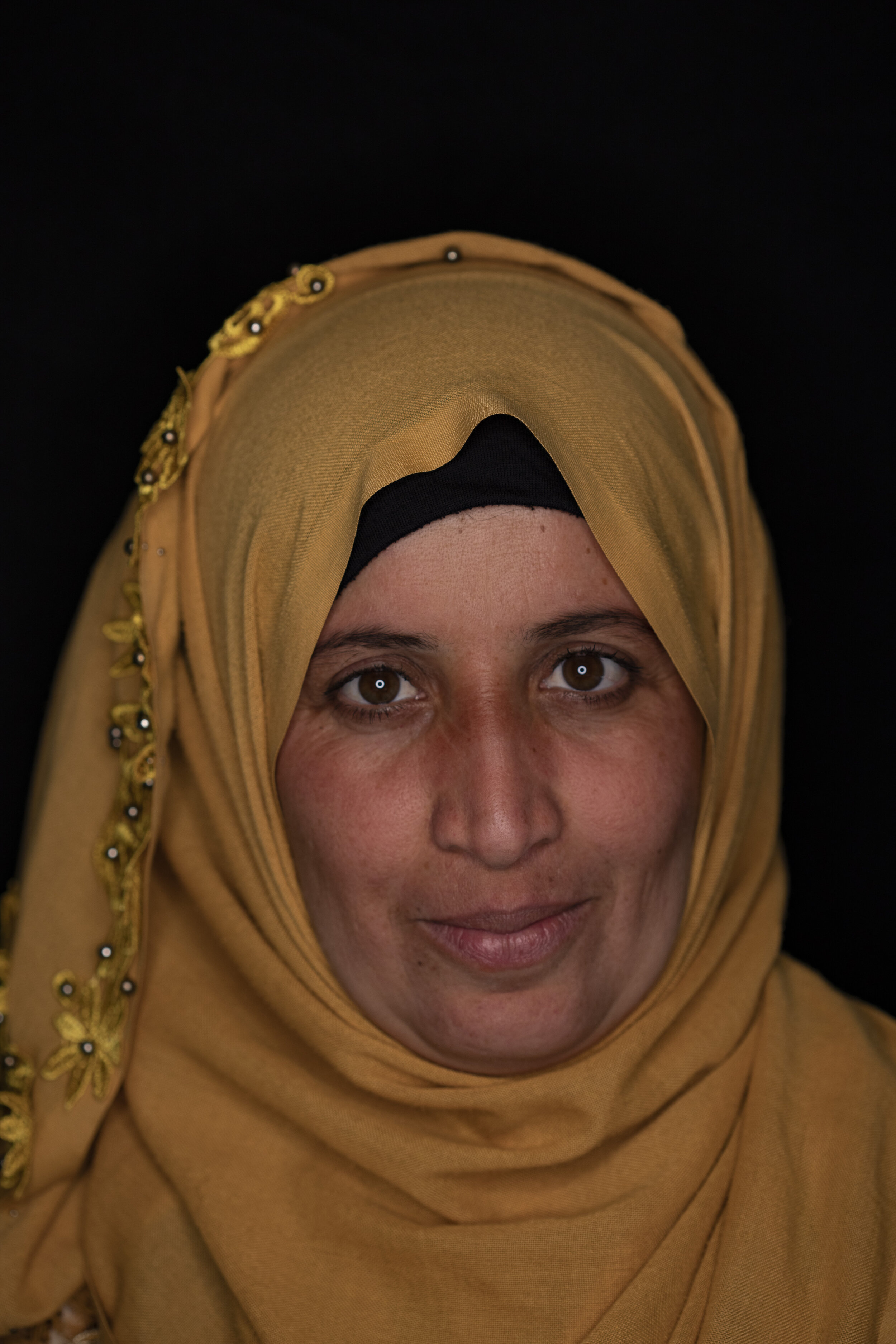
My name is Nafla Farhan al Ftayeh, I came to Lebanon in 2017. I used to work as a teacher in Syria. I have 4 children, two were born is Syria and two of them were born here in Lebanon. My children, like many others, don’t go to school. Some children in the camp are 15 or 16 years old and they don’t know how to read or even to write, but they learnt to live with the difficult circumstances, although actually not going to school makes them loose their future. I believe that since they are Syrian refugees, in the local schools they are put in a second rank, and they are rarely accepted.
I would like to do a build a small room for the children in the tent, specified for them to spend their day, to play, to draw, to read since they don’t go to school, unfortunately we can’t afford that now. They watch Tv, the play over the phone, they play outside to meet sometimes with the children neighbors. If they had their special room, I could put their toys for them, histories for them to read. In this way they would have their special place to organize and it even makes them become more organized. But now, because there is not enough room, I am all the time: “don’t play here, don’t do anything here”, they just have to play outside.
When I was in Syria, I lived in the family house with my husband, he had a younger brother that used to live with us. Our financial situation was a little bit hard, this is why I searched for a job I order to help my husband in the income. I started teaching and my eldest son was only 40 days old and I used to carry him and go to my teaching work. I was pregnant with my second child, I used to carry my first child and anyway go to the teaching work. Of course, I used to return home and do domestics chores that I had to do.
At the beginning of the Syrian crisis, it was hard for us to go to the city in order to get our wage, this is why I worked for the whole year without a wage. Despite that it was a difficult situation, it was a good year in my opinion because the staff that I used to work with, helped me and carried my child, there was that spirit of helping each other. I finished the first year of the Syrian crisis and then I had my two children, I used to take them both to the school and continue my work as a teacher. Unfortunately, ISIS came to our village and the first thing they did is that they banned the mixture between boys and girls inside school, because they gradually imposed their restrictions on us. They didn’t do that at once, so I have never imagined that this would happen. The first thing they imposed is covering the face, then they imposed us to cover the whole face like that and we had to wear gloves to hide the hands. They are putting restrains on us in every place, so if they see a woman that shows her eyes, they take the identity card and then, they hold her husband as a detainee or they arrest him. If they see my child wearing blouse that has any kind of a logo, referred to a foreign country, they used to punish us and also my husband for that. Prison or a financial fine. They imposed taxes on us on everything: if we have for example an olive tree and we want to extract oil from it, they wanted a return tax for them when we had our profits from this tree. ISIS did not impose restrictions at once, they start to impose gradual restrictions on us. I used to watch television day and night and I used to see the victories of the Syrian army, I felt that one day I am going to sleep and wake up to find them not existing anymore, they just left the village.
Despite armed confrontations that used to take place in the village and this placement as well as the destruction of houses, I completely refused to come to Lebanon at the beginning. I used to discuss this with my husband, he used to tell me: “see the people how they are displaced, the killings, the destruction.” I used to say: “No, we can actually move from one village to another, this way when they are not there anymore, we can actually go back to our village slowly”. Unfortunately, the saddest moment when I passed the Syrian borders and this is where I said to myself: “There is no going back. I’m not going back to my country anymore, unfortunately this is the reality”. I had this feeling inside of me that when going to leave there was no turning back.
I have deep-rooted memories back in my own country with my friends, with my family. I have even precious memories pertaining to school, to my education years. When we left, it was very hard for us to leave because they banned anyone from leaving the country. We left because it was hard to live, we were dressed up with the clothes that we used to go with when we were in the fields, for them not pay attention to us. When we were on our road to leave the country, I just had this sad feeling deep down and I started crying, crying and crying, knowing that I was not going to return back to my country.
So, first to escape we used the boat and we had to use the boat to reach another farm where we stayed almost until midnight and back then, I was pregnant with my third child back then, she was a girl and I was pregnant in my eighth month. After that, we took the boat again to cross the water after midnight, we slept outside, I had my two children and pregnant at the same time. The weather was very cold and then, we reached the area where the curds are controlling and then, we removed the burka and the thing that covers the whole face. I removed it when we reached that land. When I reached Lebanon, built this tent I live in now, and settled inside it, this is where I felt safe.
My husband has taken care of this family, he has a dream of saving some money for us to have like a small project as a source of income if we returned to our home country. Of course, when he hears on the television every day about the homicides, the killings, the destruction, those dreams are immediately collapsing, so we are still in the same vicious circle.
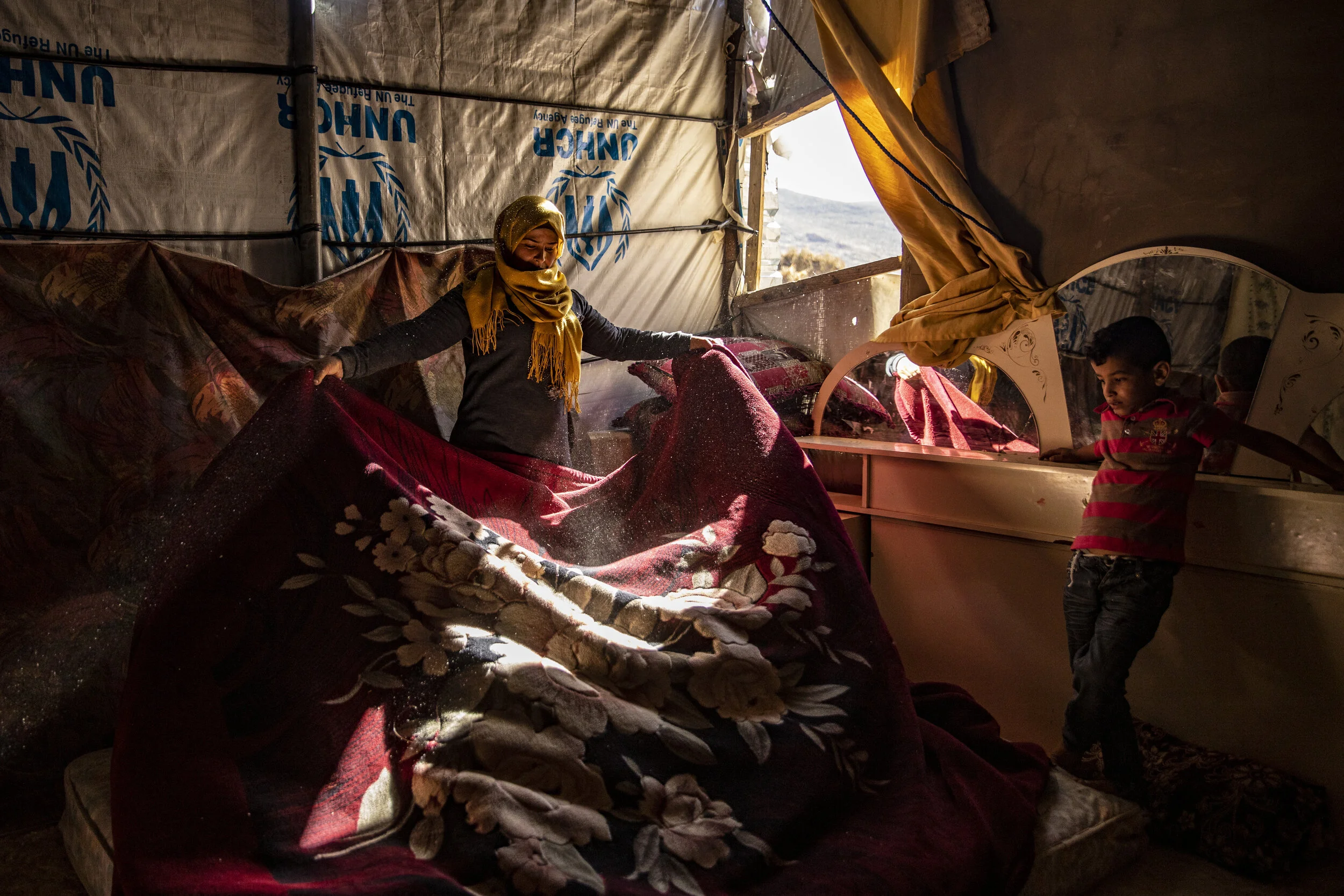
My name is Nisrina Tiekaloush, my age is 27 years old. I have four children. I came to Lebanon in 2011. We left Syria because of the war: the bombing, the air raids that were in the village where we used to live. Our house was destroyed and we had to cross the border here to Lebanon because we lived very close to the Lebanese borders. It was easy for us to cross the borders and then to flee to another village that might be far away, in order to find safety.
When we fled Syria, we just thought it was a matter of 10 days and then, we would return back. We fled with our clothes on and the only thing that I brought with me was a red blanket to cover up because it was winter.
I work in the fields in exchange for free rental, plus they give us 10.000 Lebanese Lira a day (6$). We accumulate debts every moth and try to settle them the following month. I have to spare diapers for the babies and change them less than possible. I try my best to keep my children clean, they take a shower, they clean and wash their hands, but we can’t do that all the time because the man who fills the tanks here is not always available. My children usually go to school, but they are at home now, due to the Covid-19 pandemic. They spend their day either by playing outside and some of them actually help their father in the field. They have to learn how to work in the fields because we have lands back in Syria. If they are not going to learn now, they are going to learn eventually there. We used to work in agriculture, in the fields but we were happy with our lands and inside of our houses in Syria.
When I was young, I went to school and I stopped at the 6th grade and then I dropped off school and I started working in the fields because back in the old days, parents did not really care about children going to schools like today. Of course, I used to love going to school but our parents felt that it was enough to reach the 6th grade, so they said: “now you can read and write, that’s enough for you. You can do another thing instead”. Of course, no one in this world does not love education, of course, I would like to go back to school but circumstances are not easy to cope up with and I have children, a big family and a house here so I can’t do such a step.
We can’t go back to Syrian now. My husband, we don’t want him to be recruited obligatory in the Syrian army. But of course, everyone hopes one day that we will return to Syria even to live in a small tent, but at least on our soil and in our homeland we would be safe and close to our families.
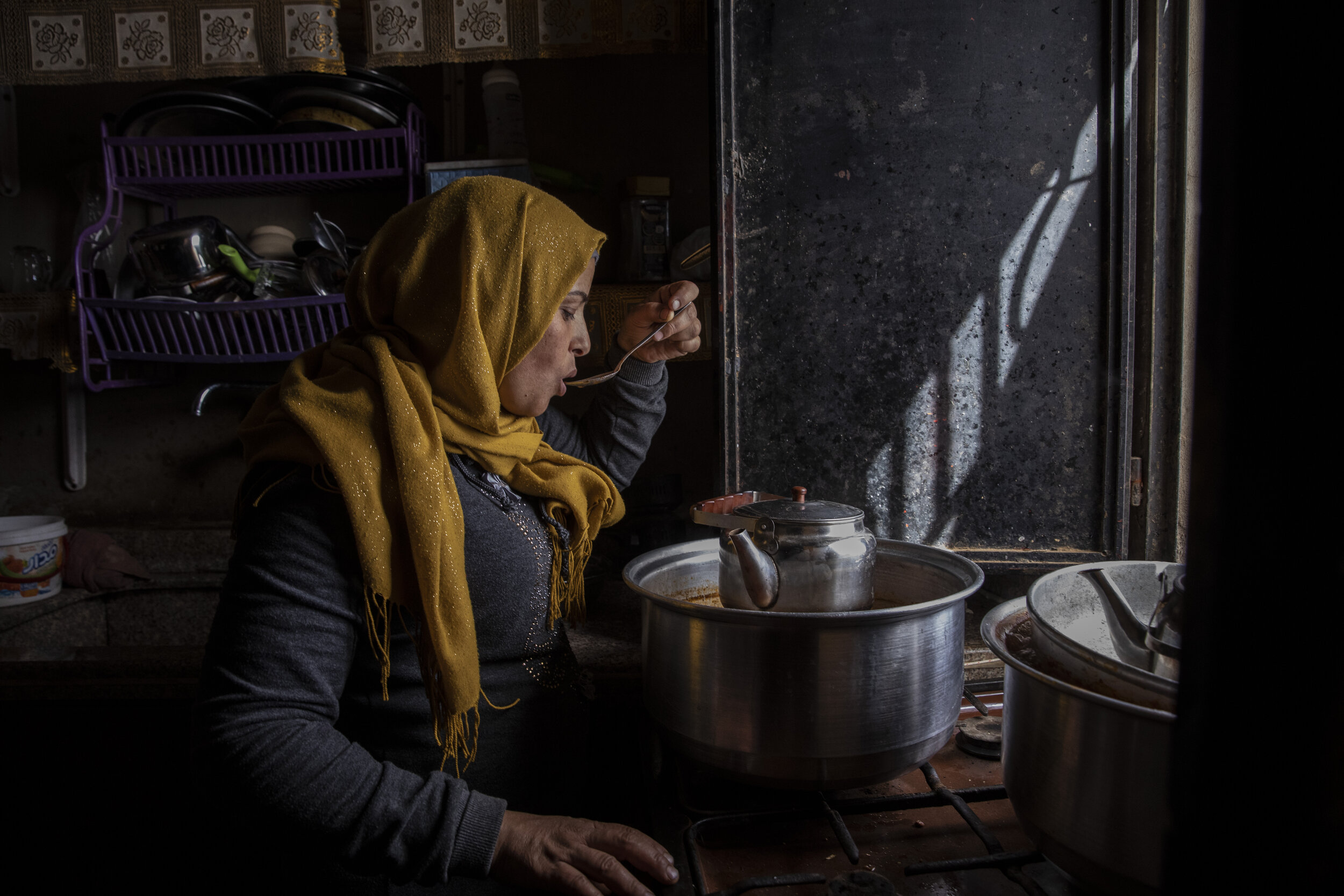
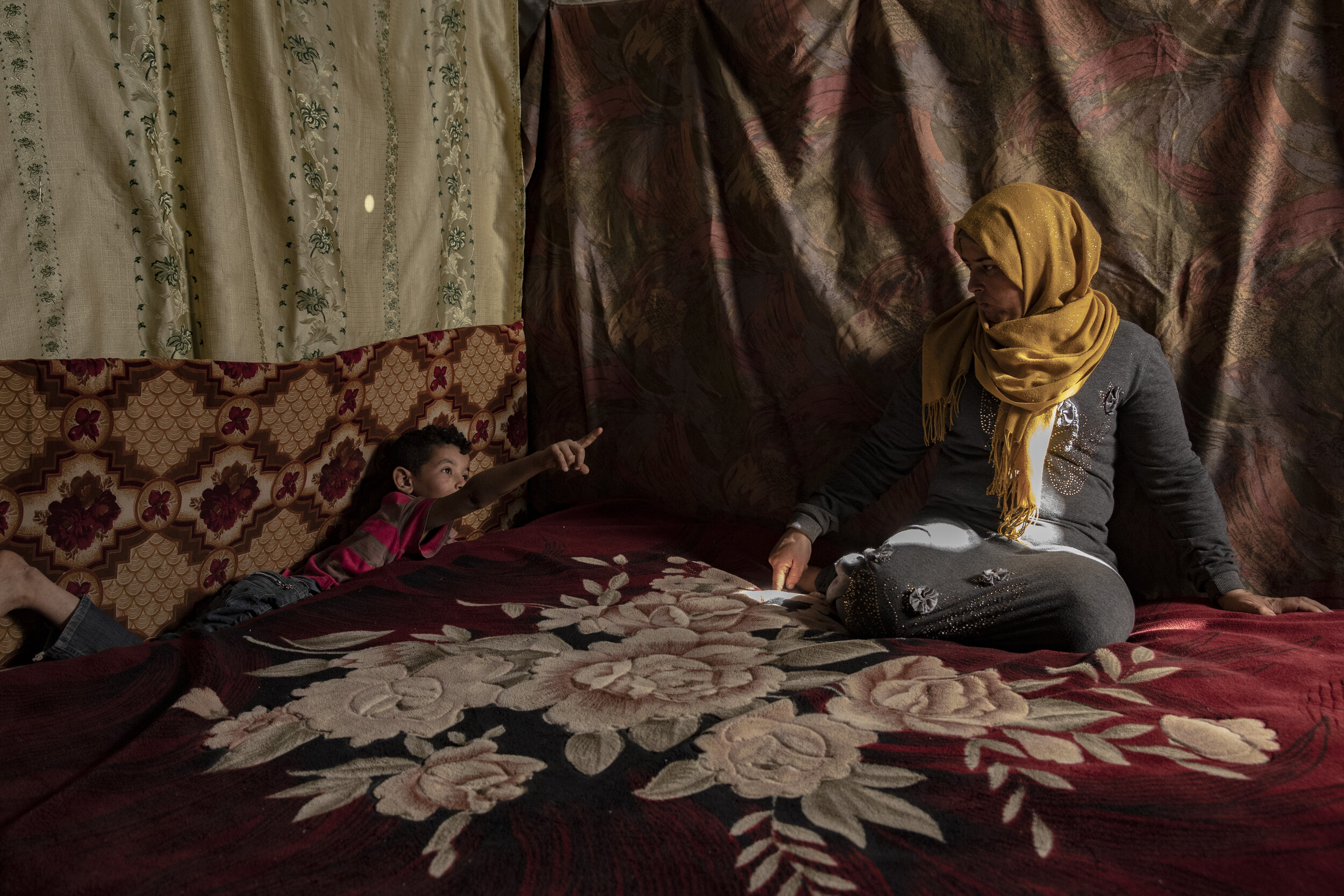

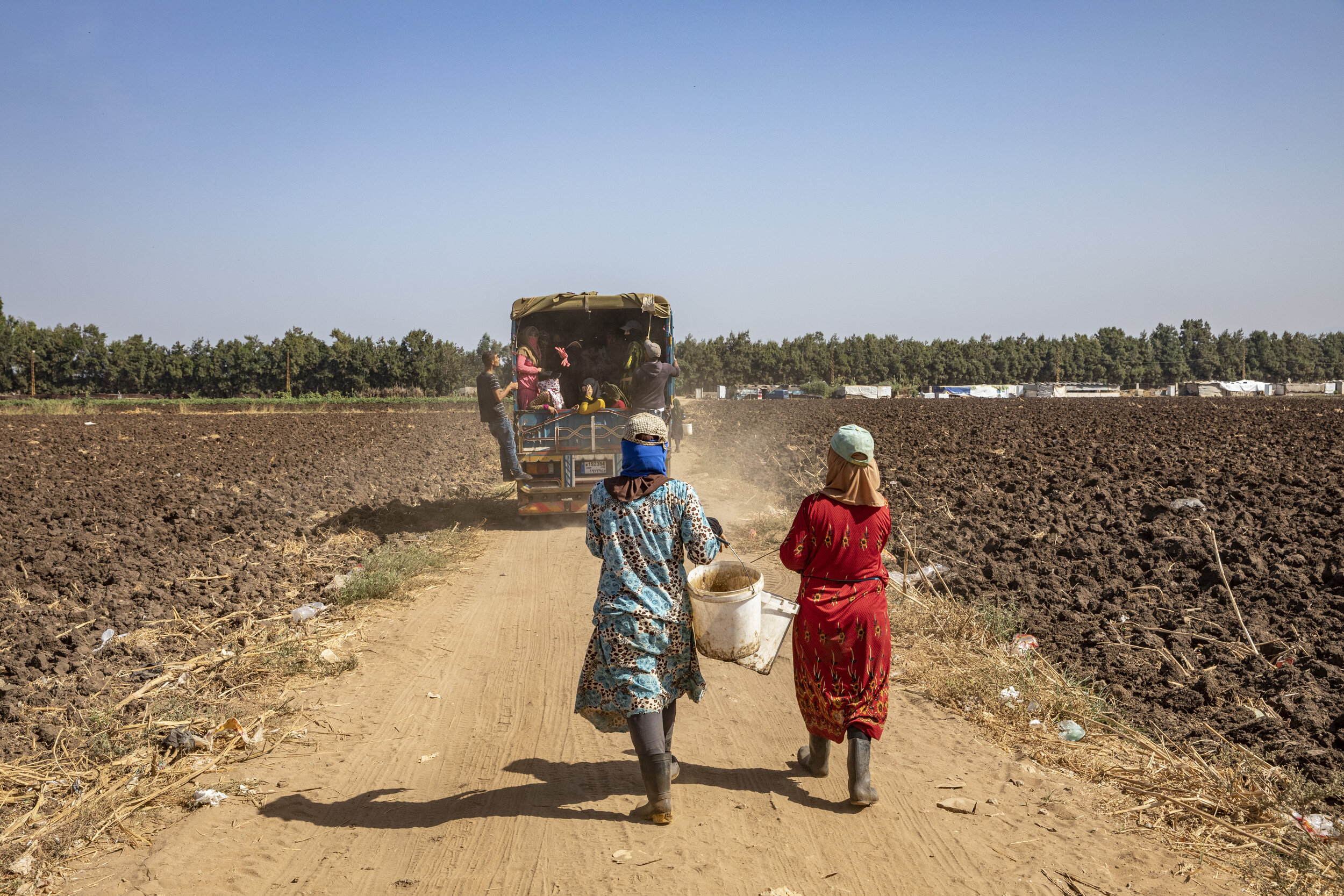
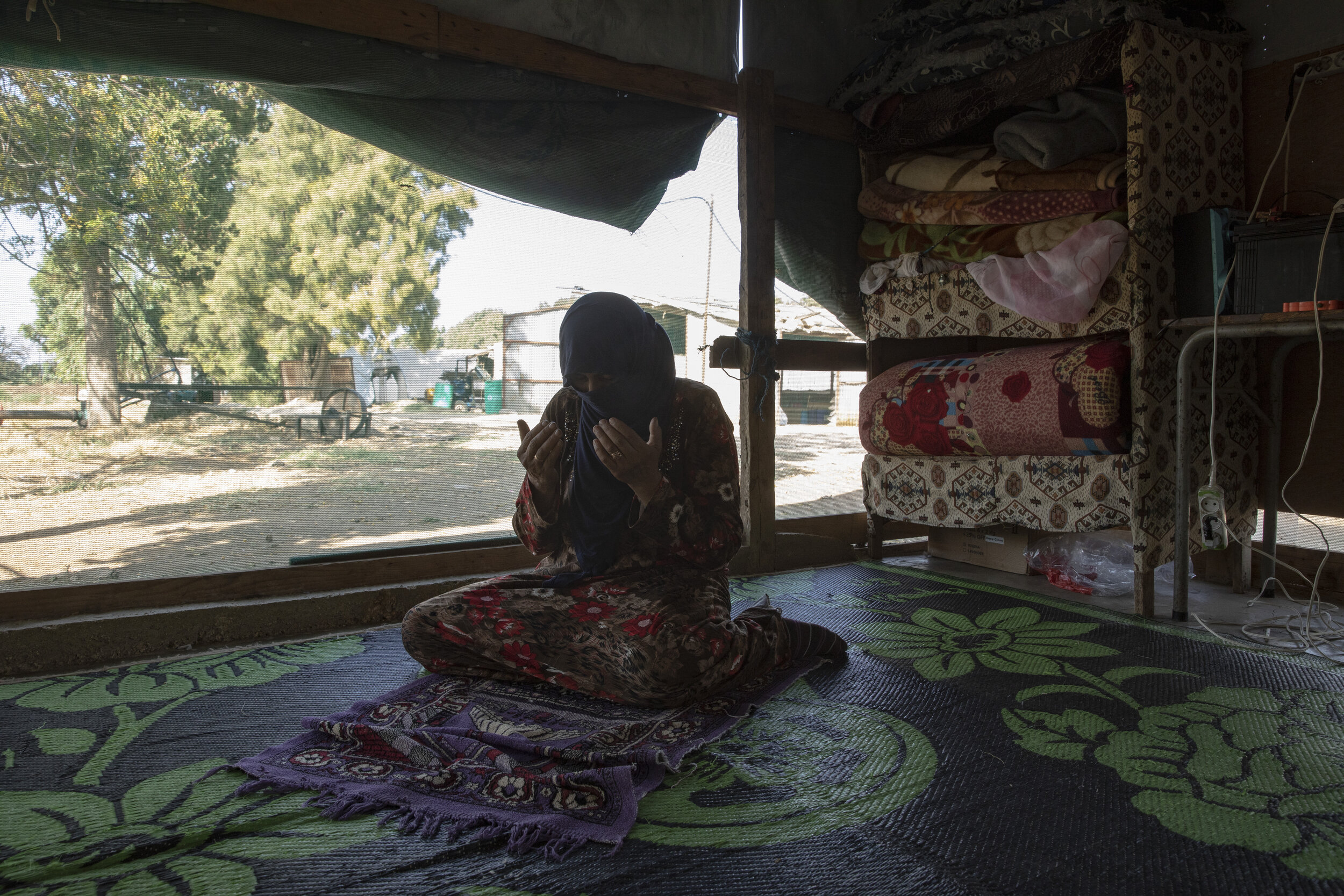
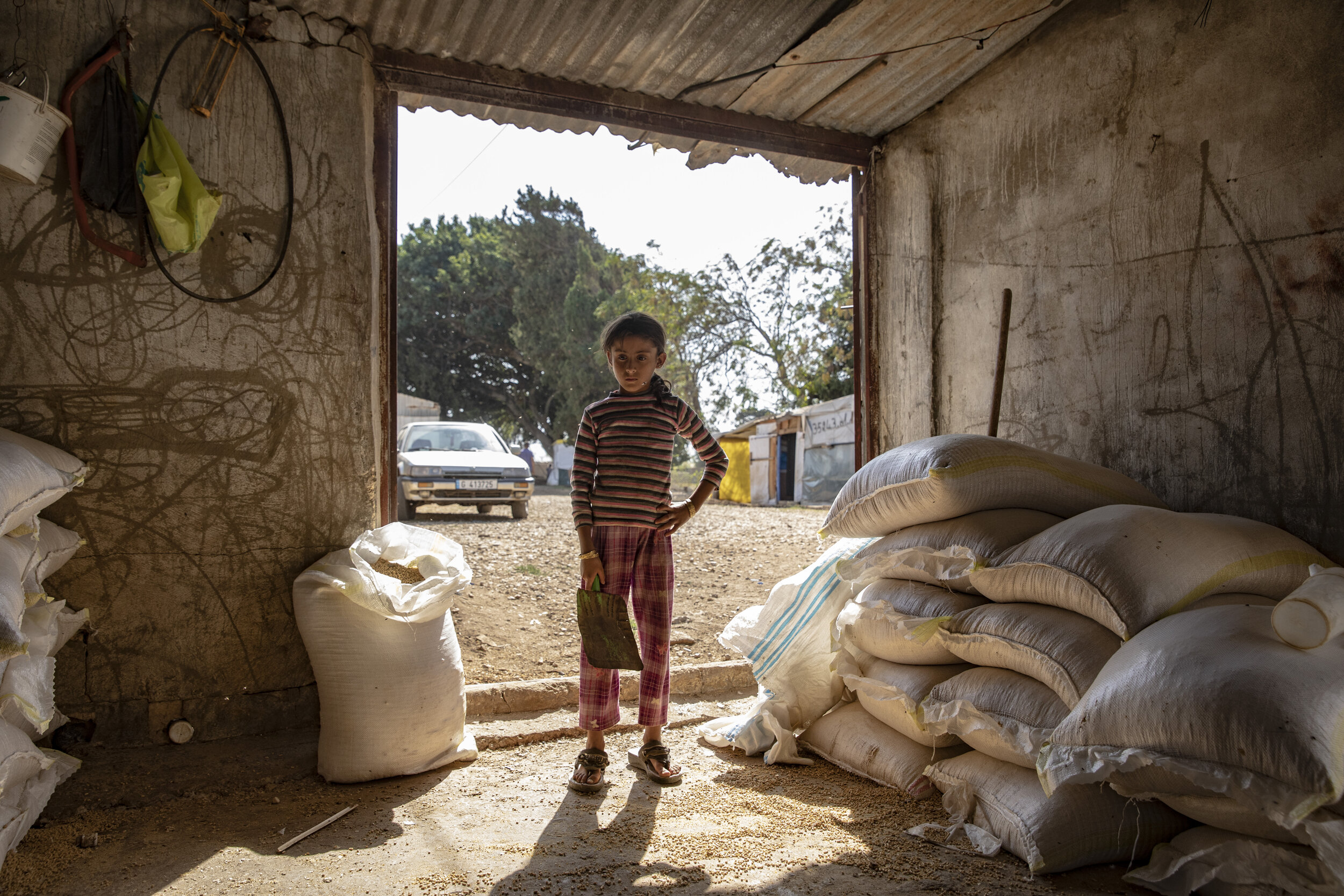
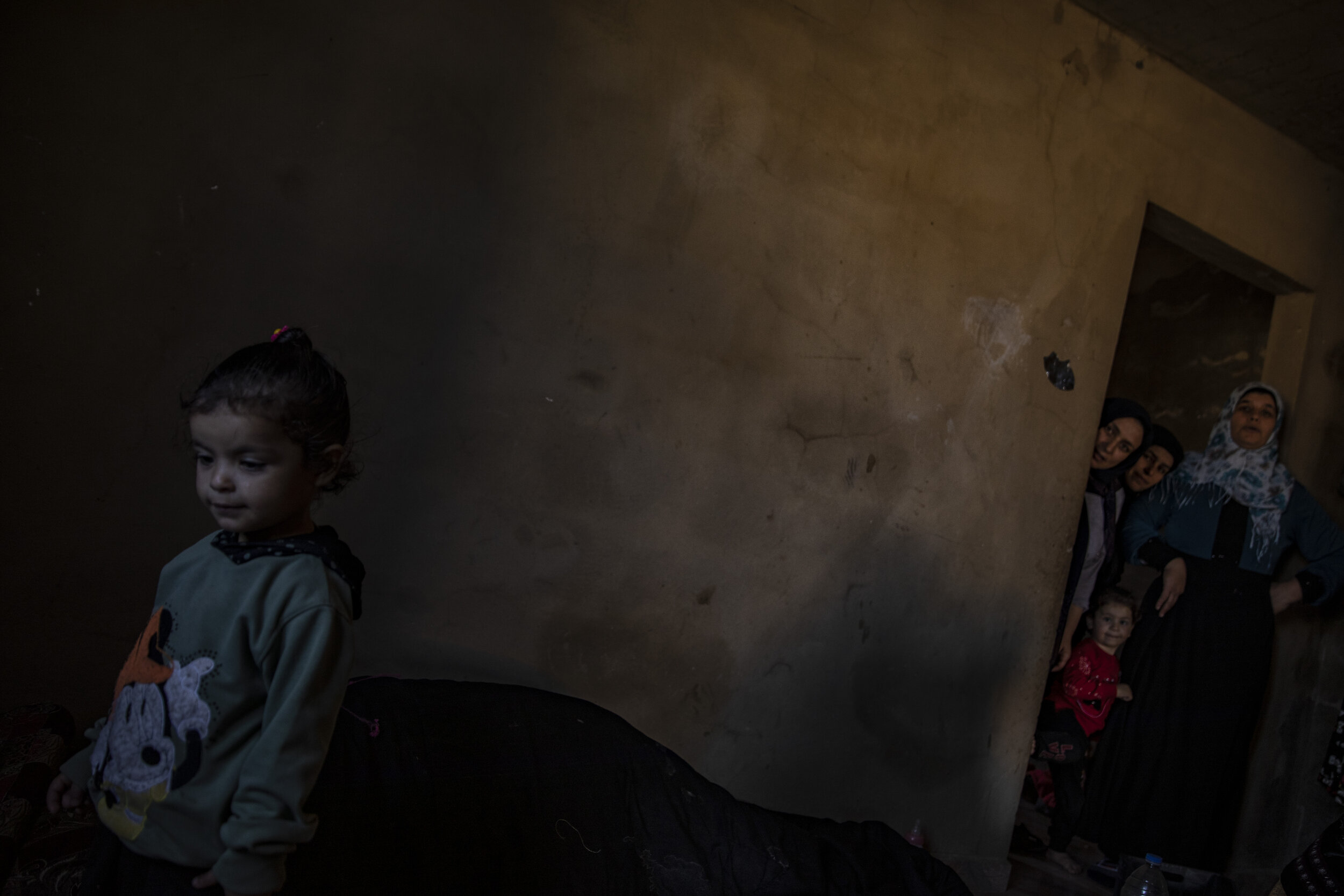
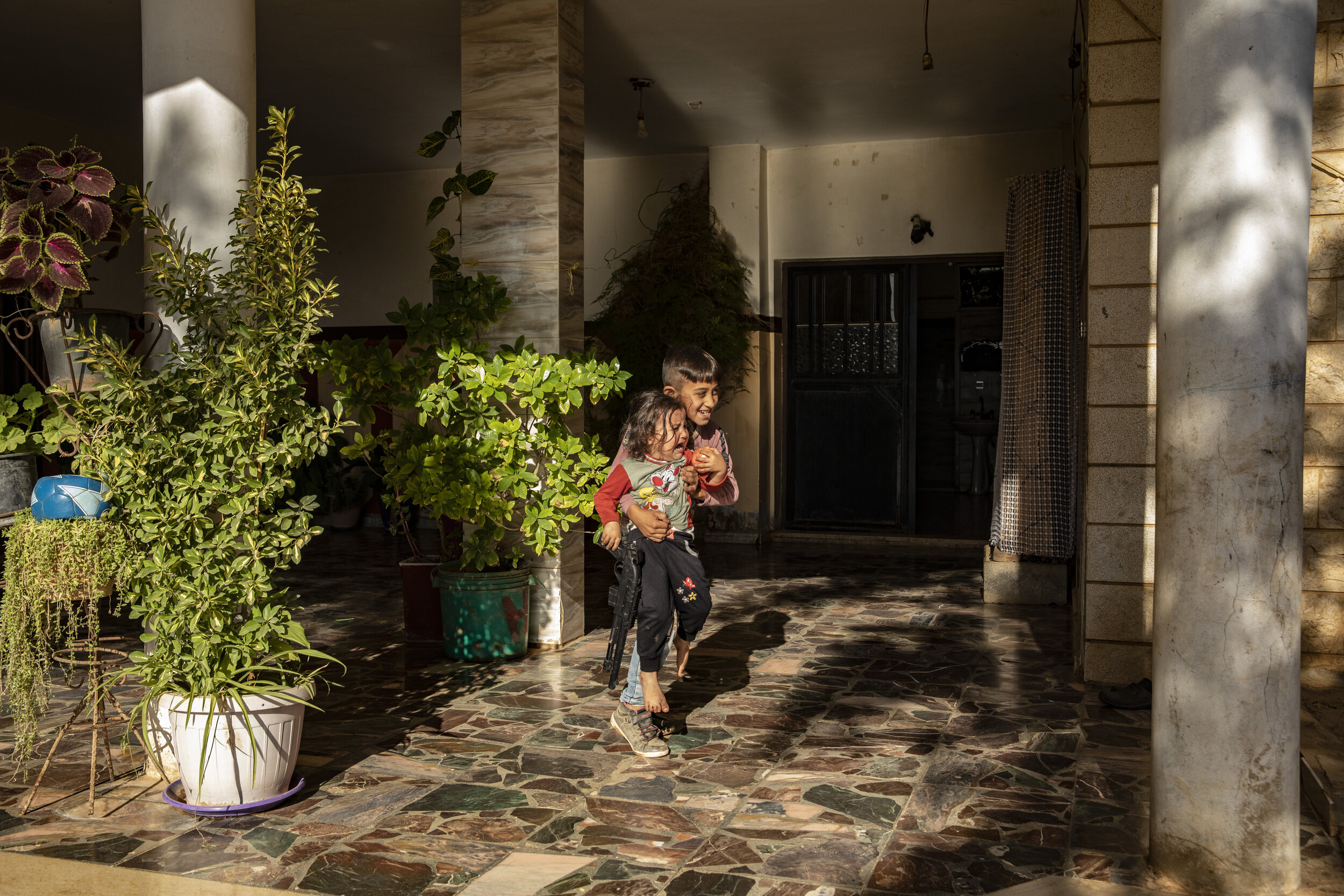
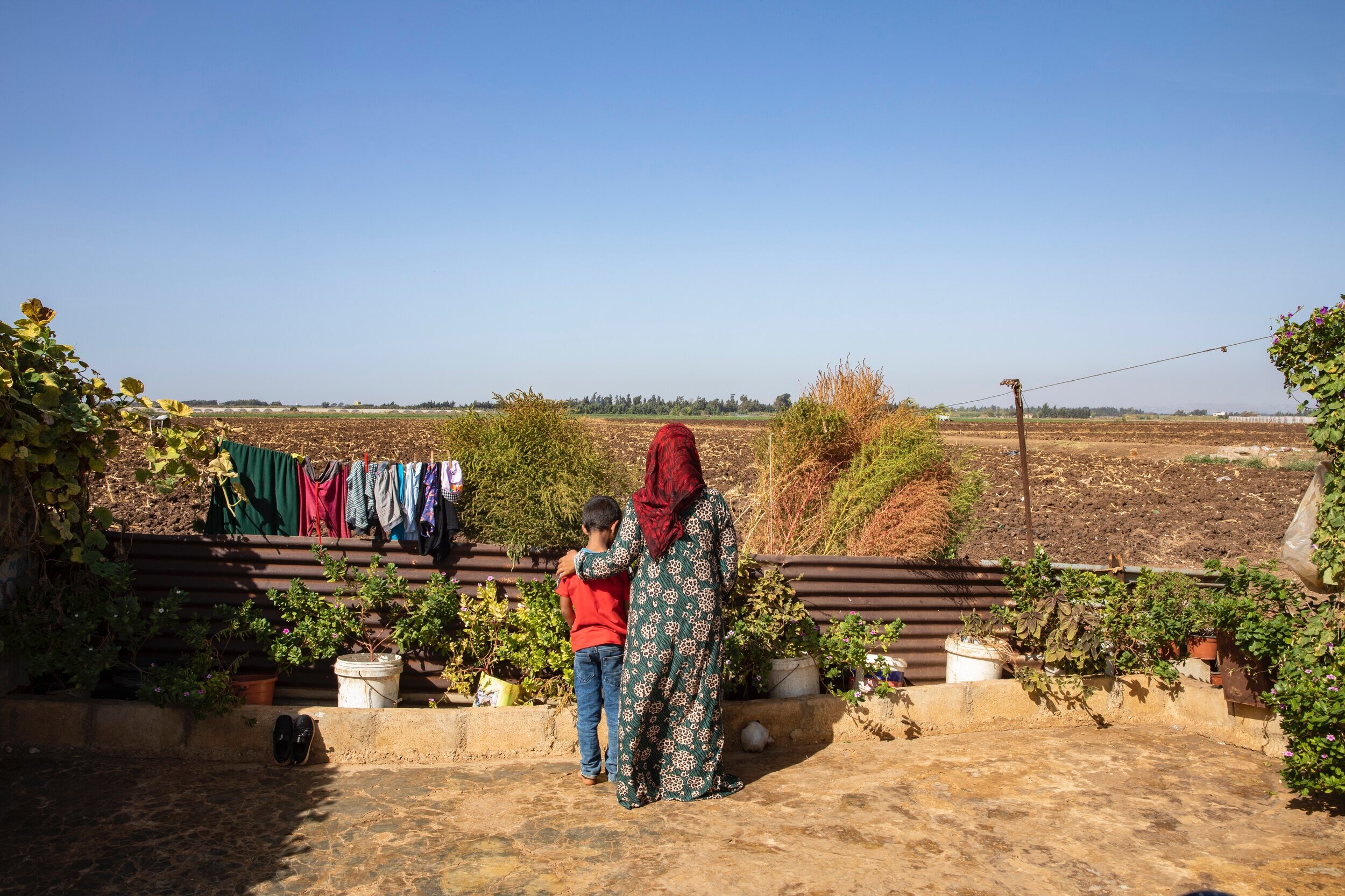
My name is Khaldieh Mohammad Alloun and I’m 36 years old. I’ve been living in Lebanon for 4 years. .
I wake up every morning and I stay inside the tent most of the day. I cannot work in the fields, I have no capacity to do so because of back-pain.
My hope for the future is having a decent life, a comfortable life for me and my only son. I want him to be happy, I don’t want him to live the same hardships that we are living today.
I would love to have my own space for me and my child, because now we live eight of us in a small tent: me, my brother, his wife, his kids.
We don’t have electricity all the time, they cut it for 2-3 hours at a row every day, so we do not have access all the time to it. When the electricity is cut during the night and we have to use the toilet, we try to take a small light with us or one of the children or a man, just to feel safer.
We’re trying to cope up with the situation as much as we can, nothing to do in hands. I receive a a monthly allowance 150.000 Lebanese Lira (100$ more or less) from the United Nations. It is not enough for me and my son. The price of products raised very much in the last years. I wish I could work like the others in order to be able to afford clothing and have at least a decent life, because others actually can afford it. I see them going out, buying stuff for their children, meanwhile I cannot do that. I borrowed money from others to send my child to school, and now I am in debts.
Back in Syria, we had a small income but when my husband was taken as a detainee, I used to go to work, but my child was only one month old so I used to carry him with me to work. I used to work in agriculture, crops, whenever there’s a season for certain fruits or cereals, but I can’t now, because of my health issues.
People judge me because I am single mother, but I am a strong woman and I will keep trying to raise him by myself. I don’t allow people to humiliate me or touch my dignity. I look at my son sometimes and I think that he is the hope, he is the fruit that I bear for all the suffering and the hard work that I did to raise him by myself, to grow up and become the young man that he is today. He’s the source of my happiness, nothing more and nothing less.
For the next ten years I hope that maybe God will bestow his mercy upon Syria and maybe, we can go back to our own country to establish again a decent, happy life.
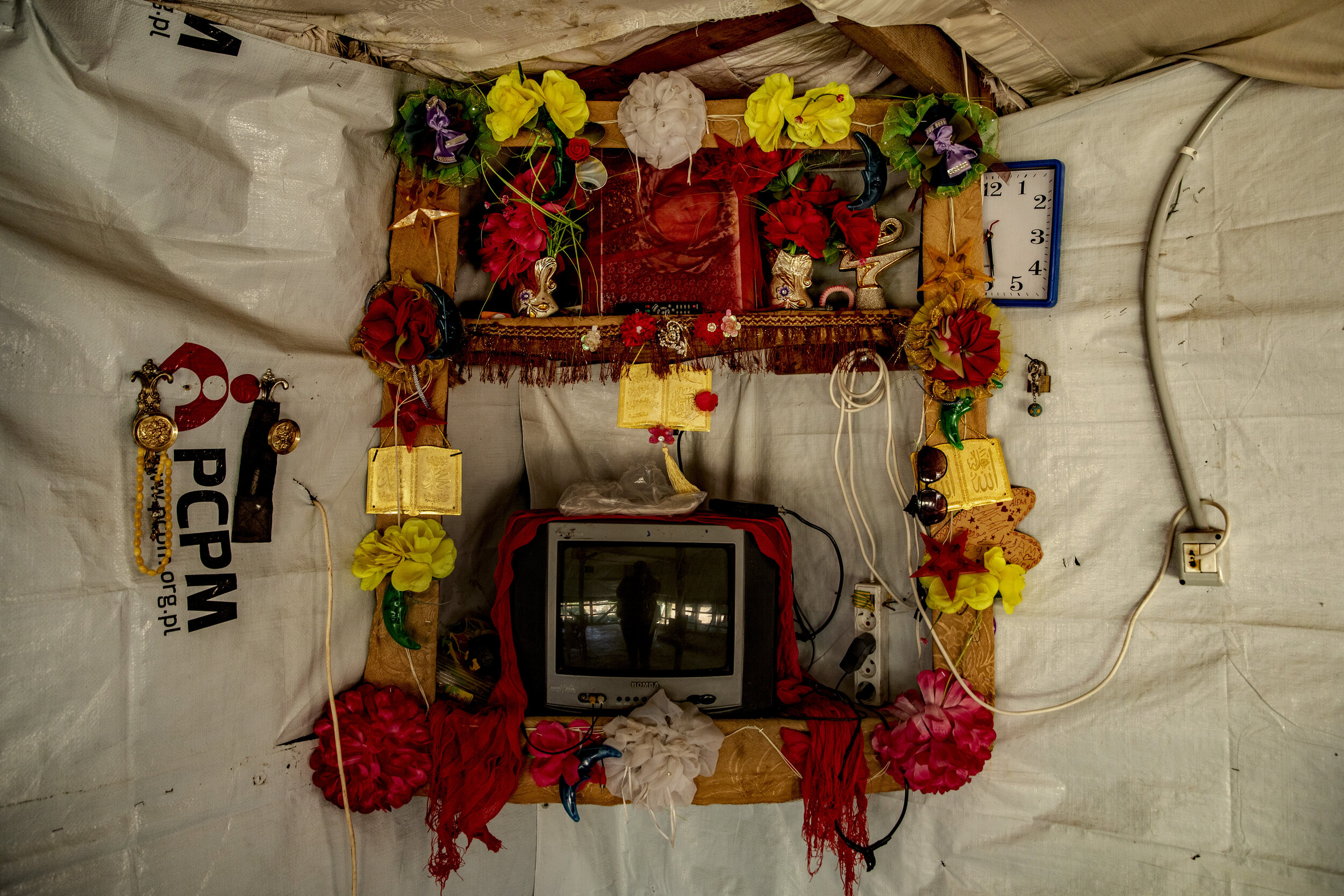
Khaldieh Mohammad Alloun
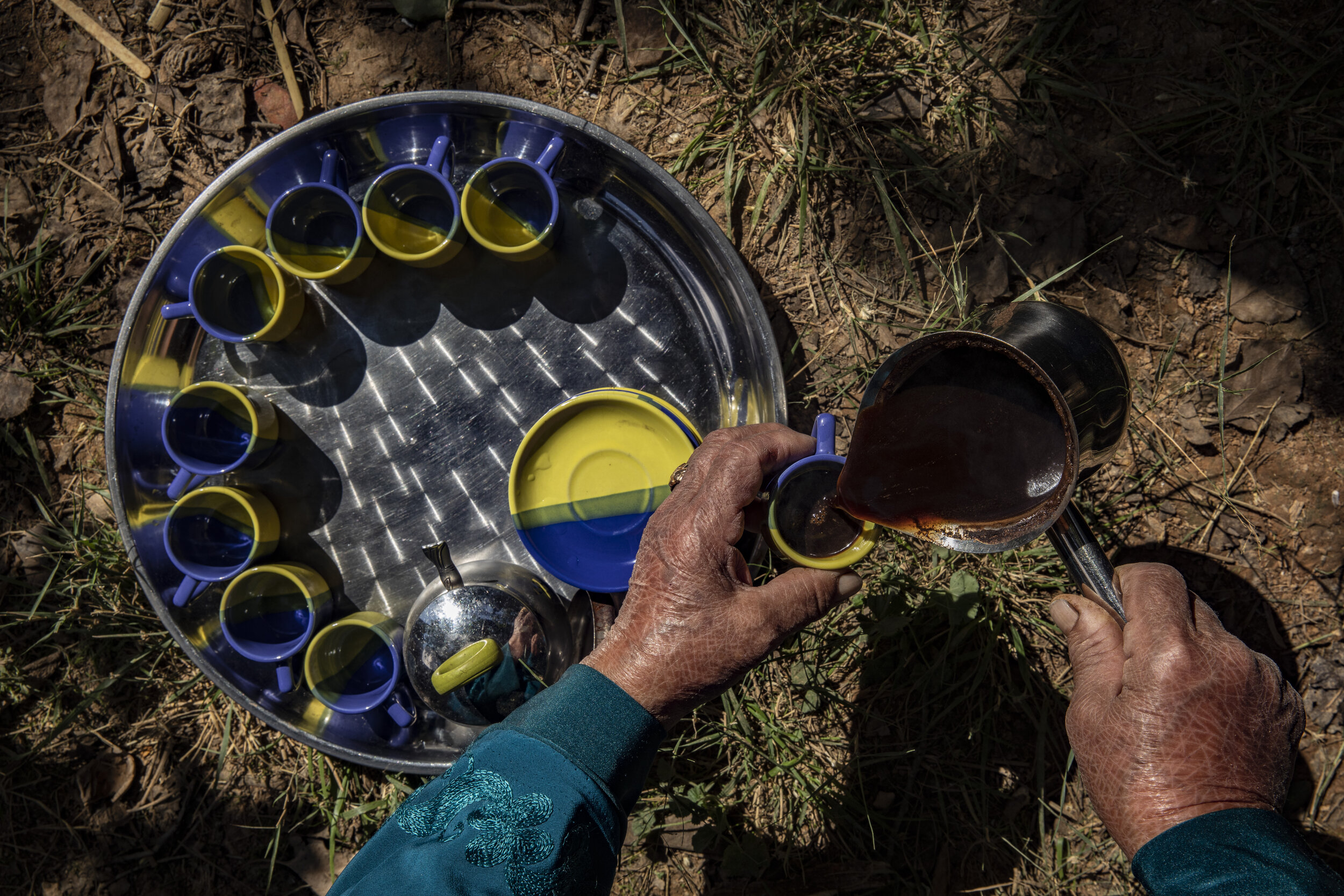
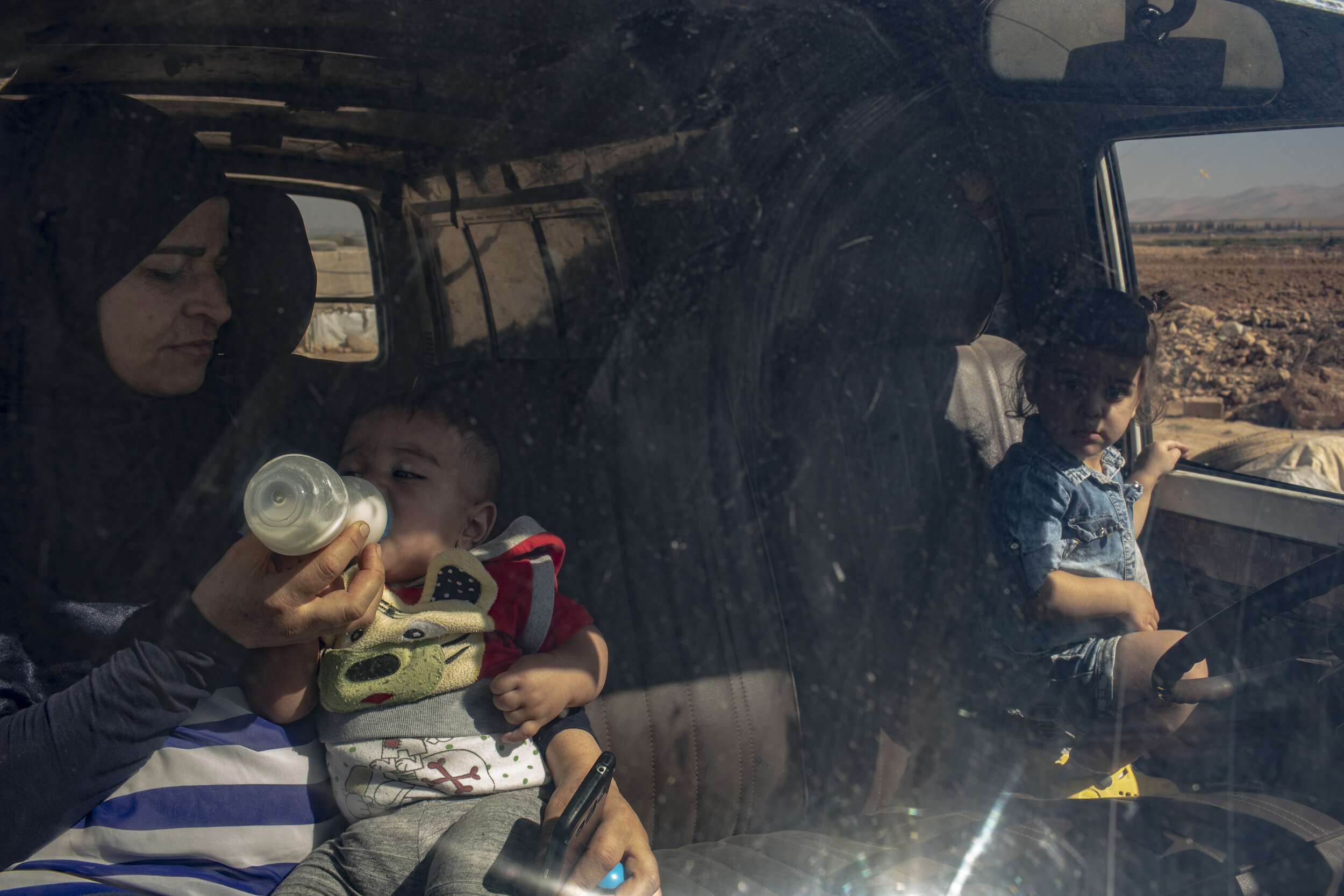
A Syrian woman with her children in a car in the fields in the Beqaa Valley, Lebanon.
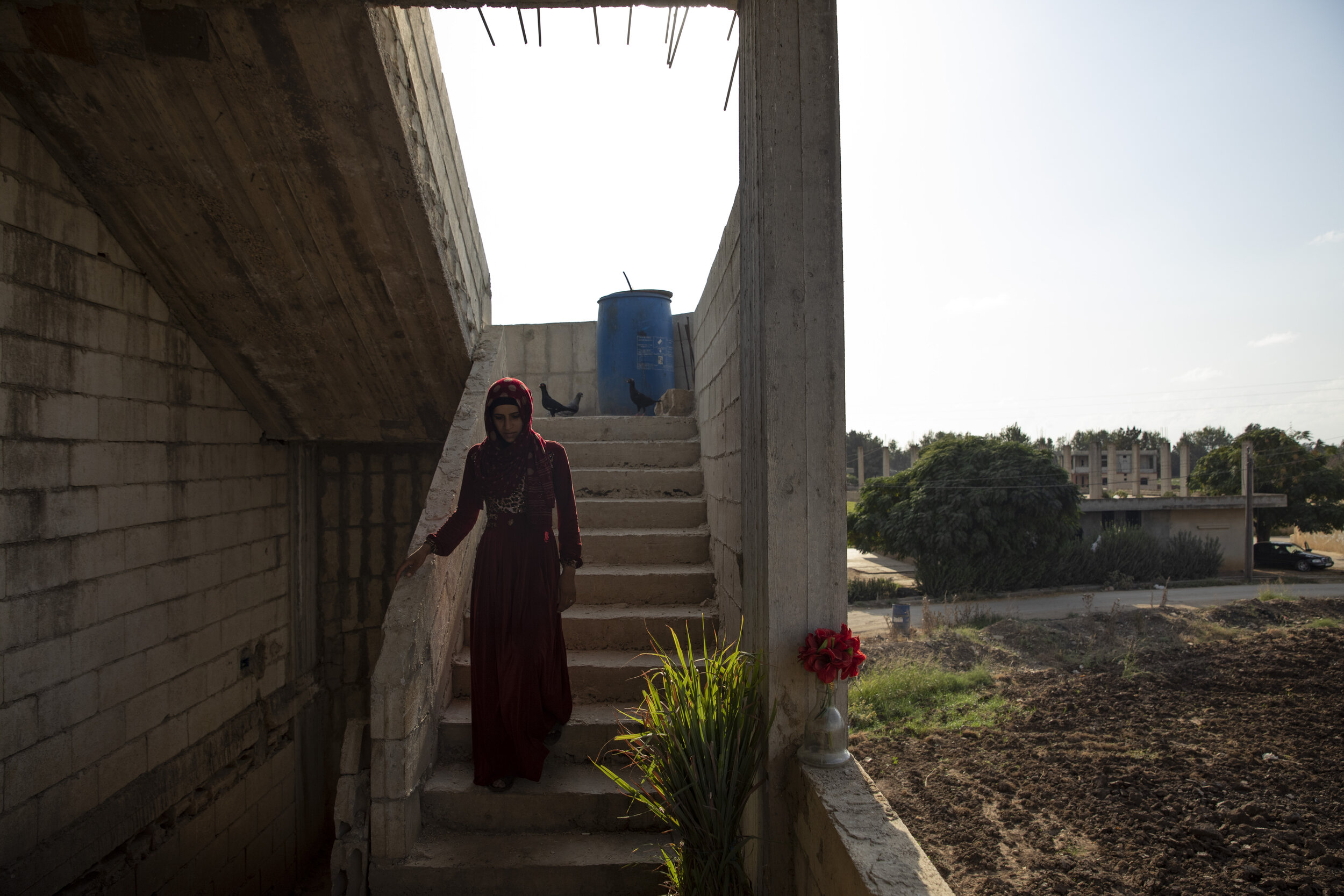
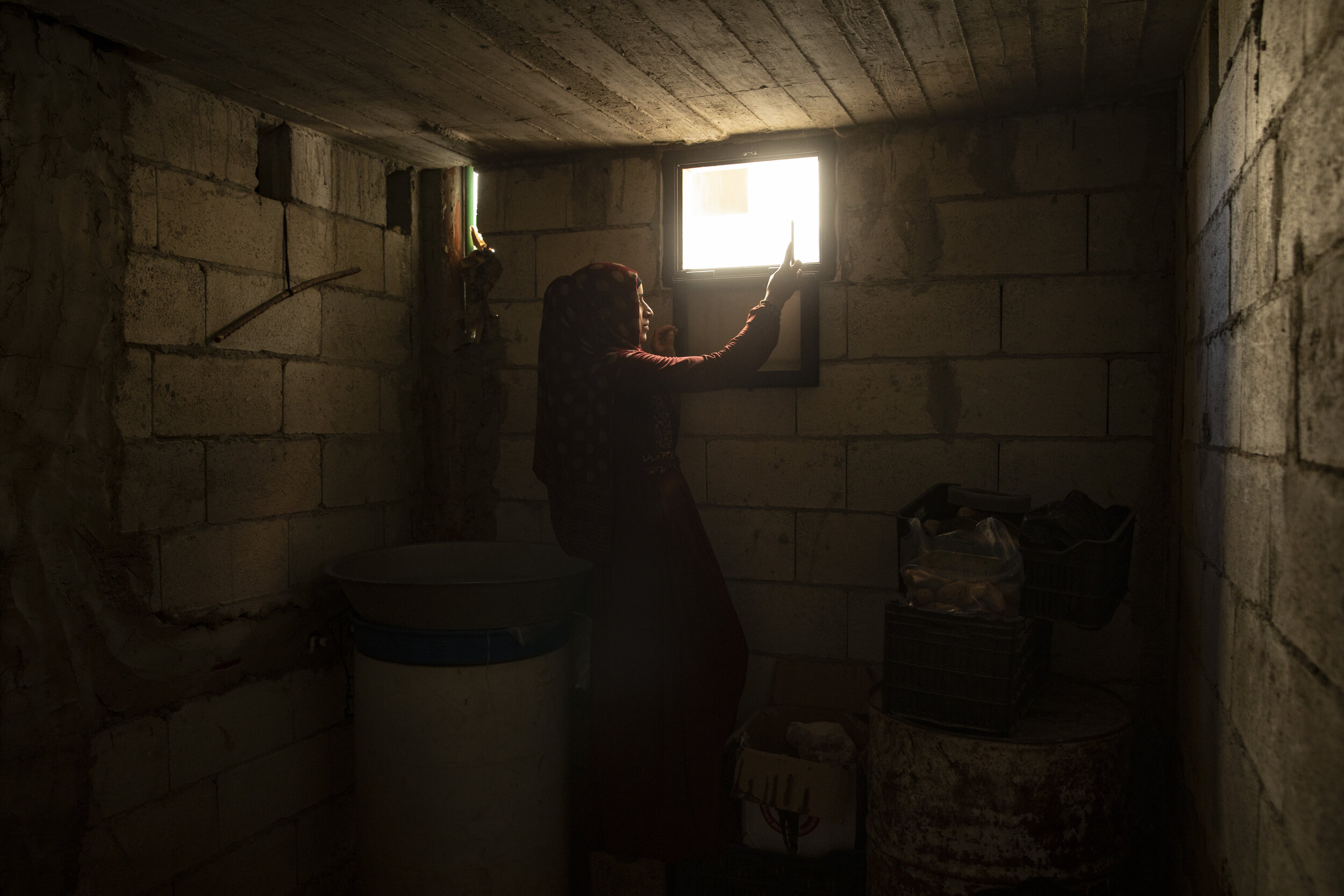
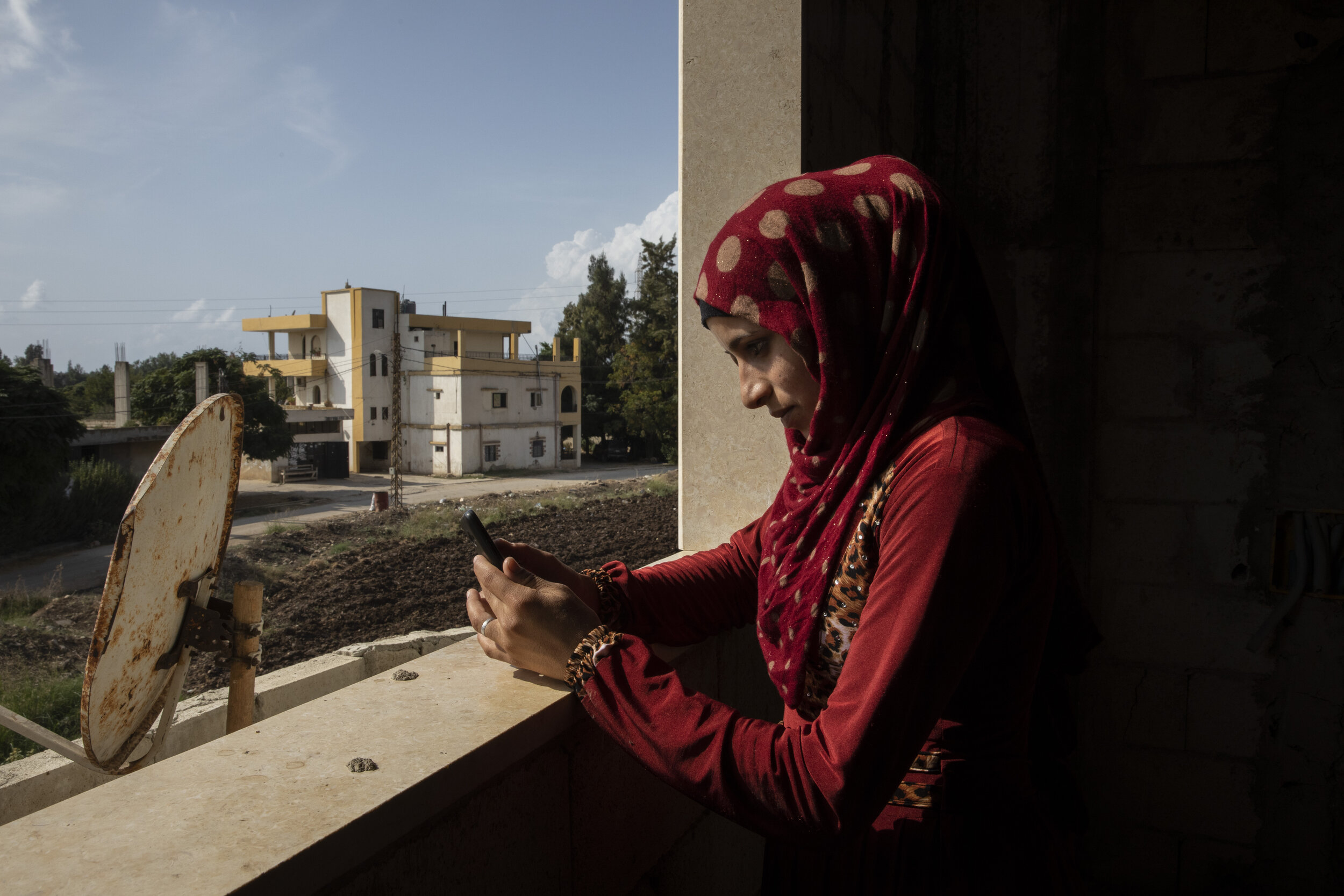
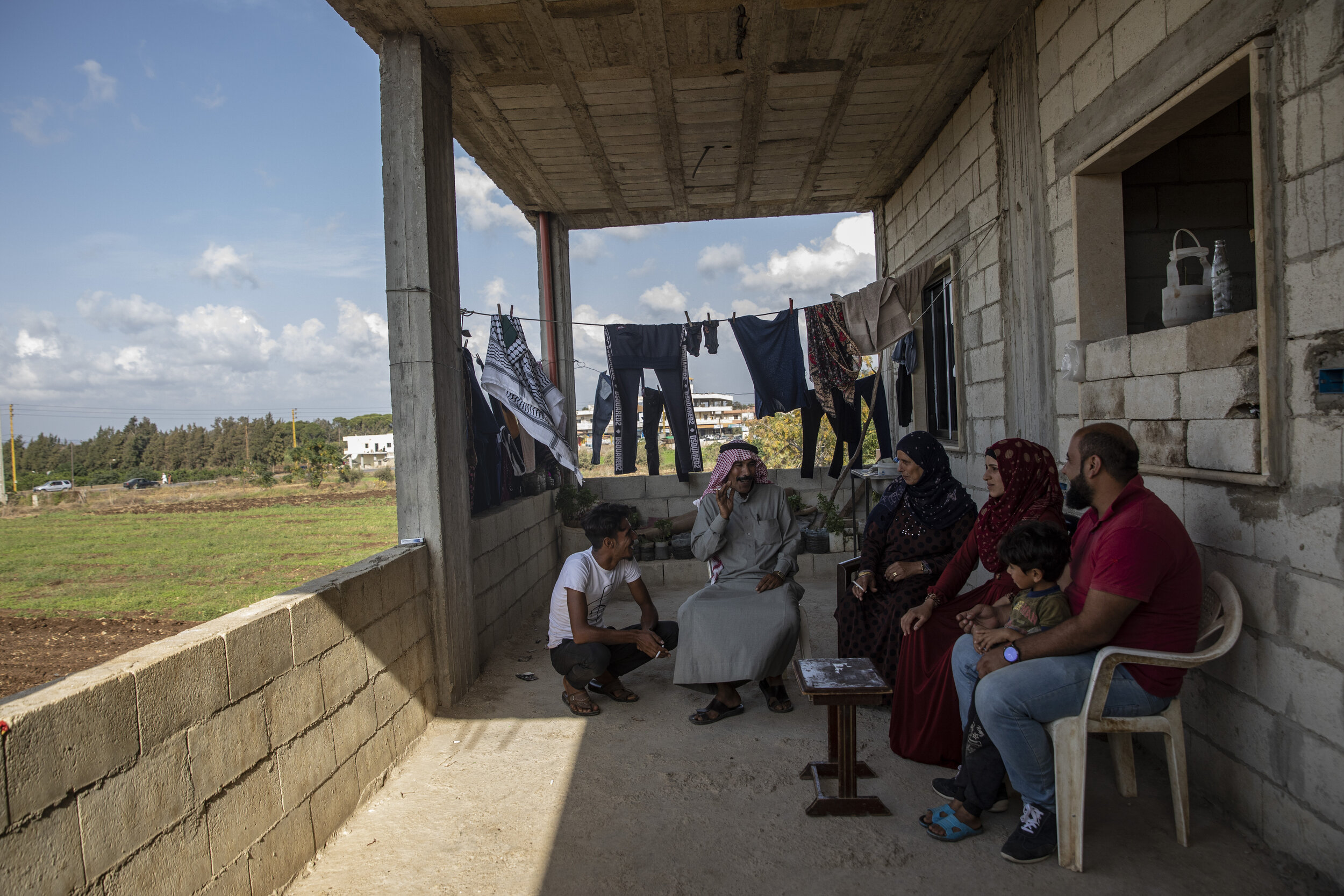
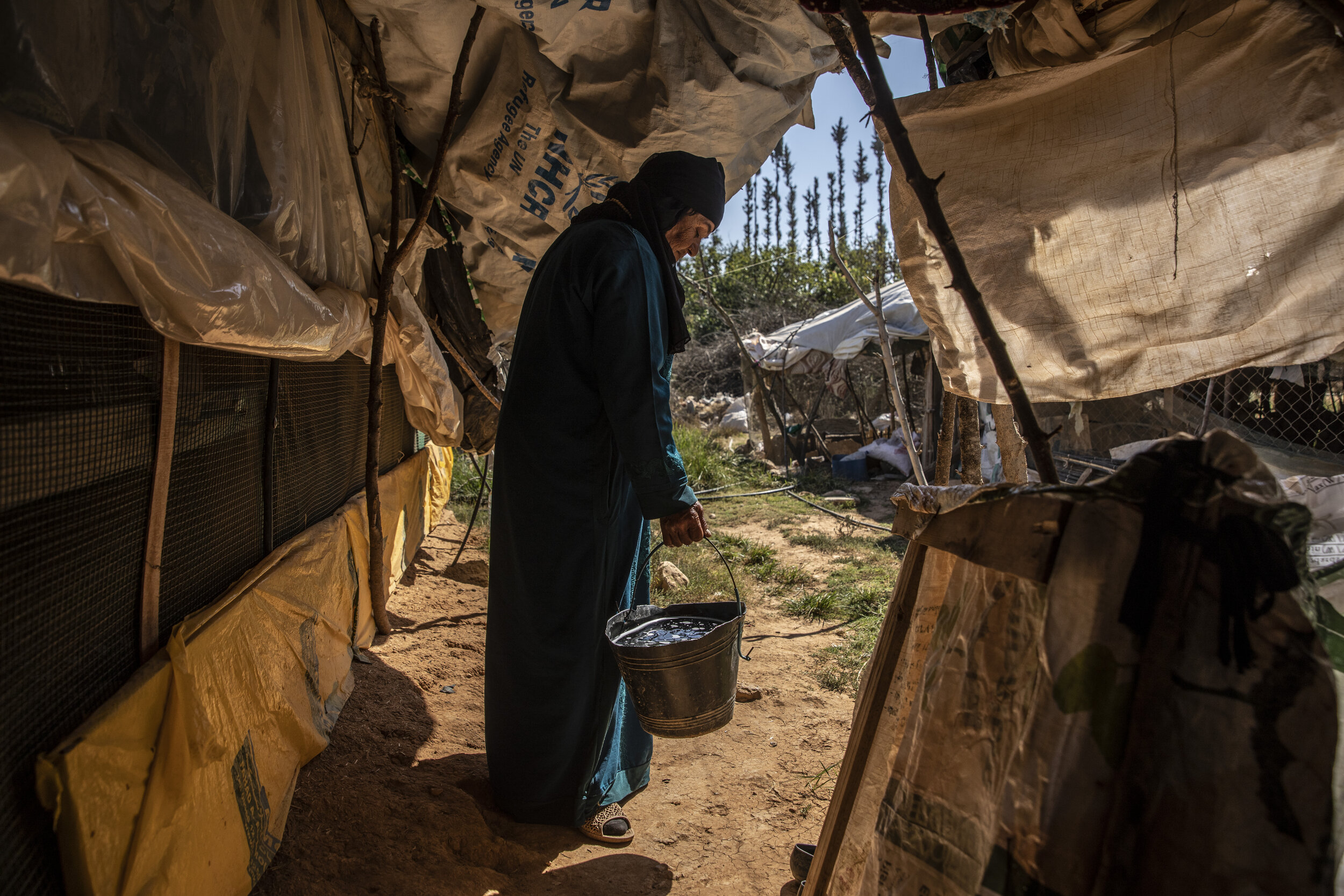
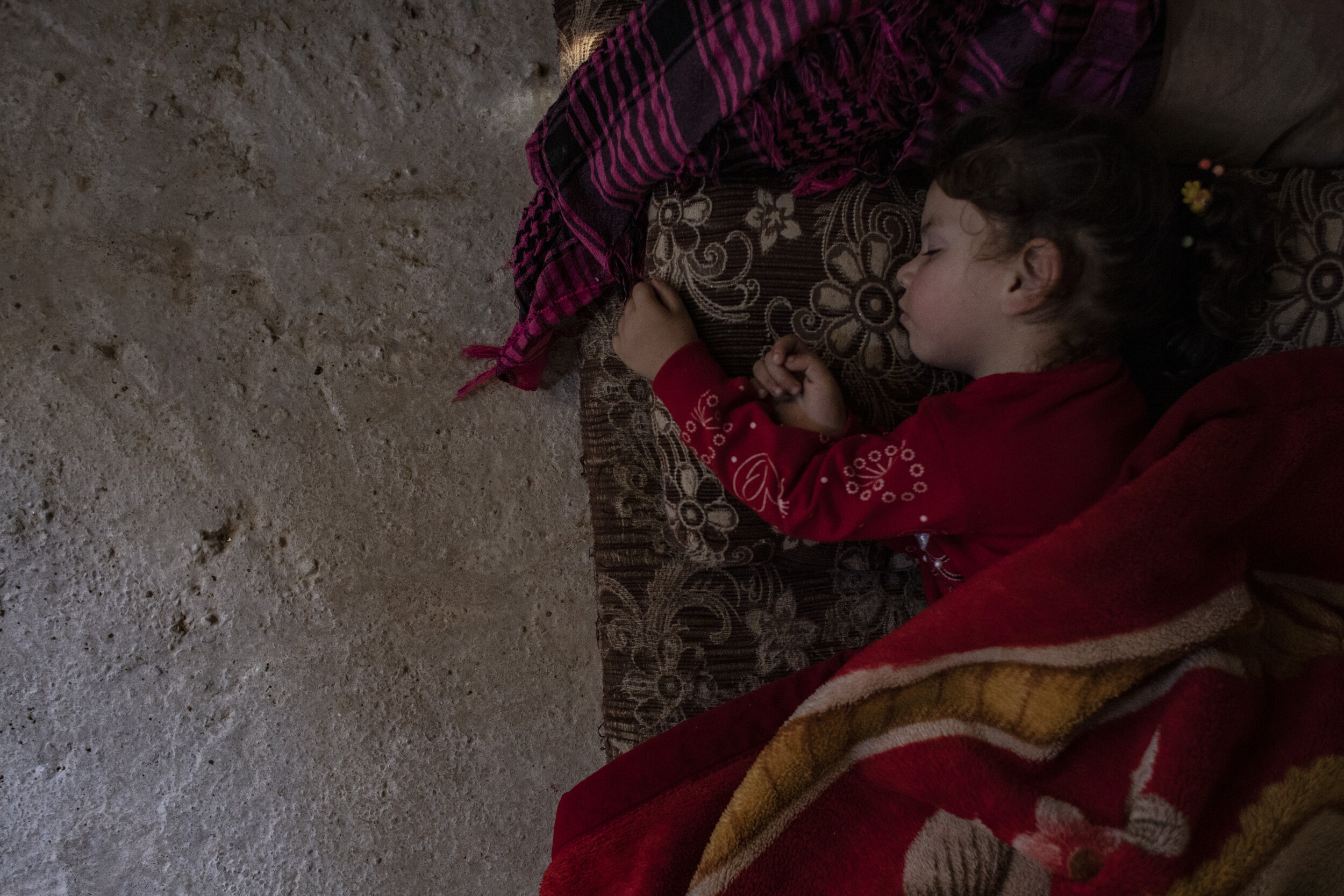
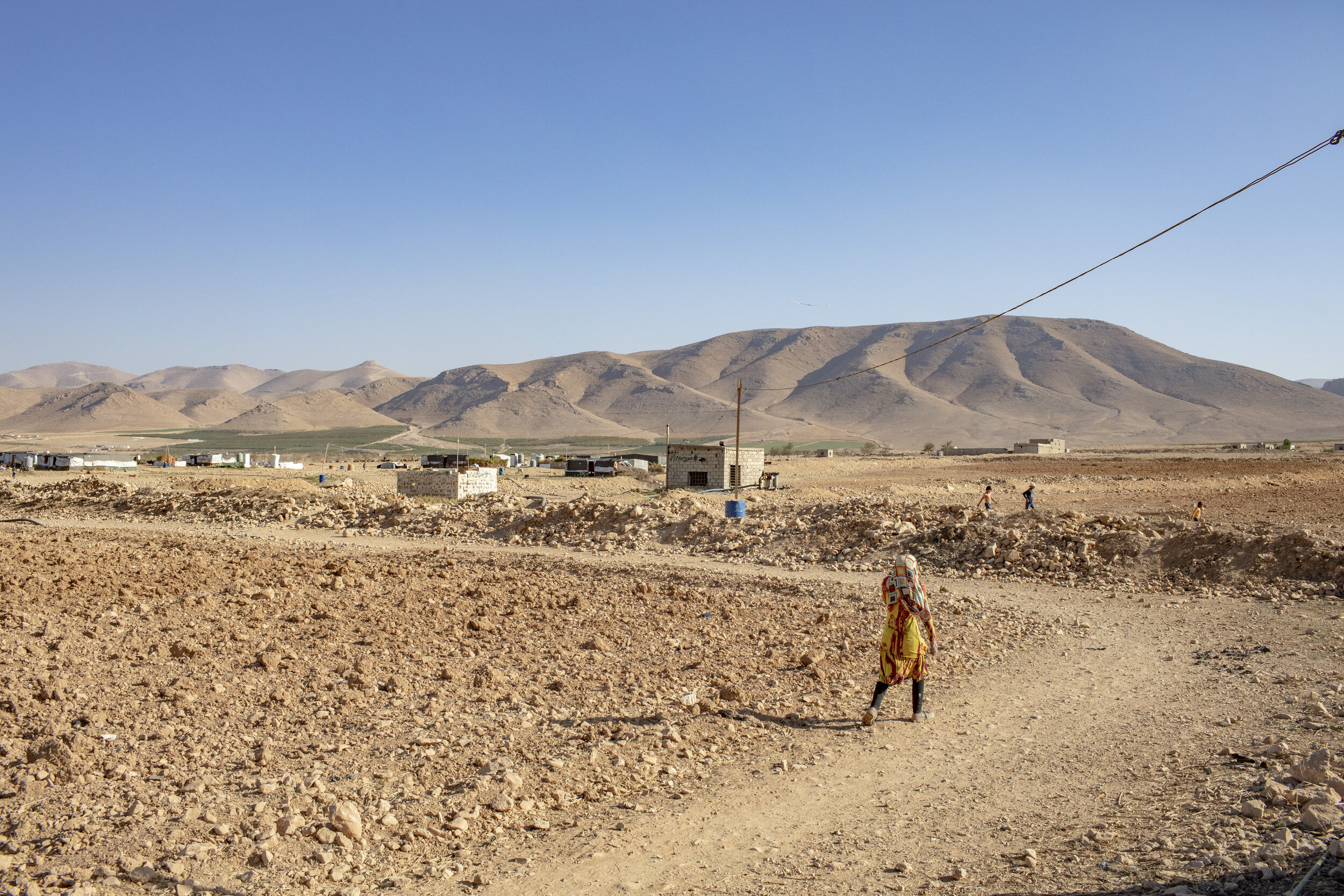
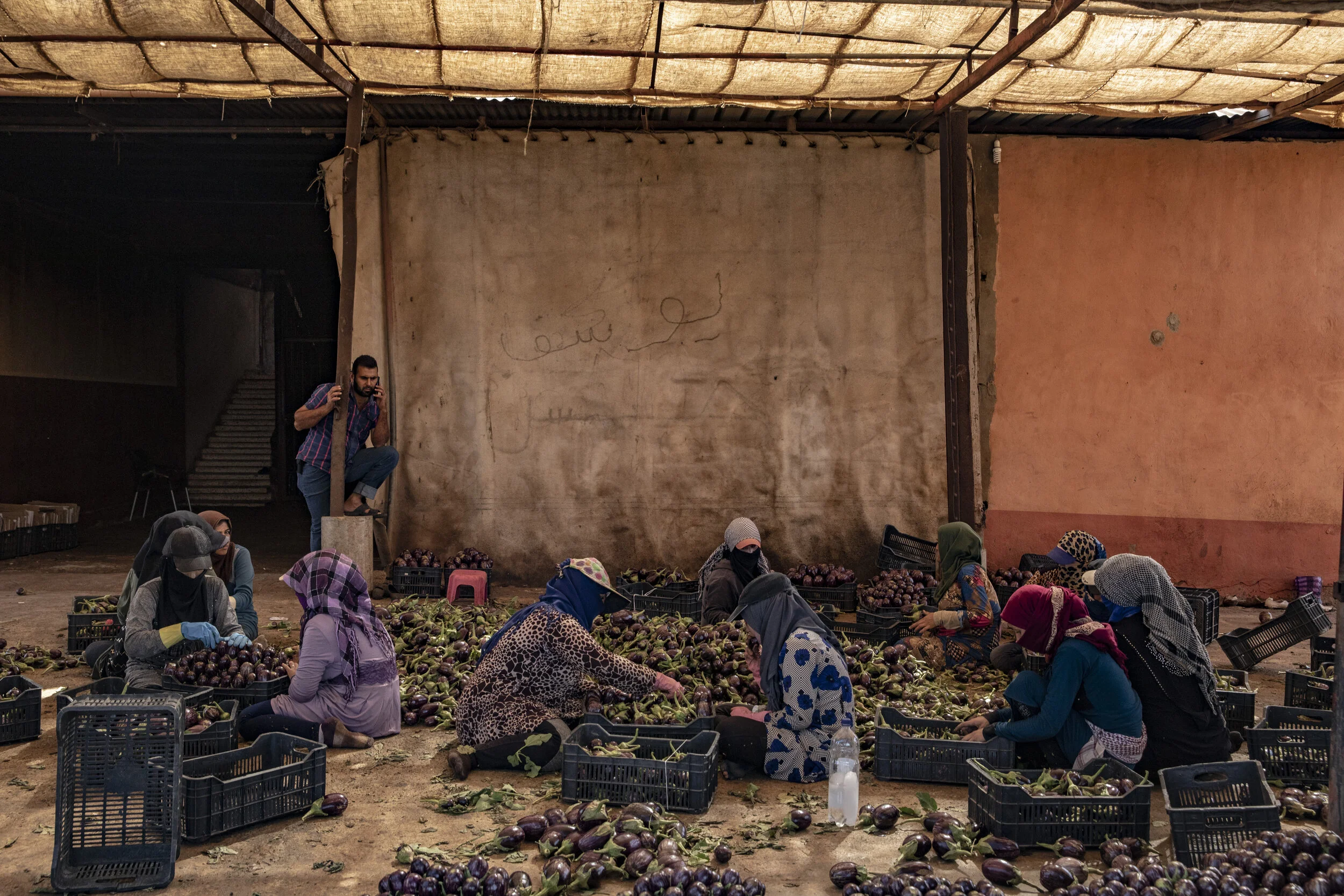
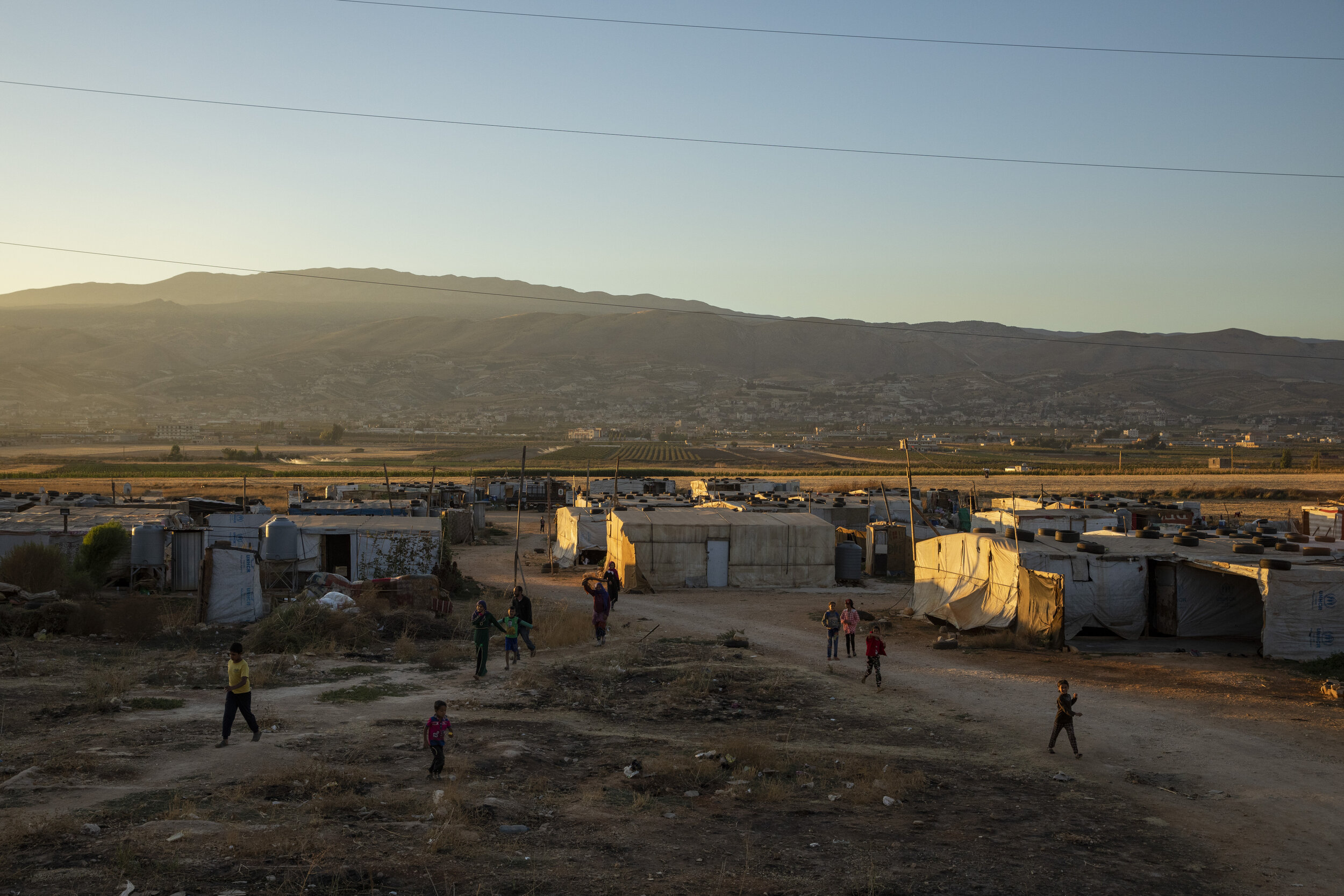
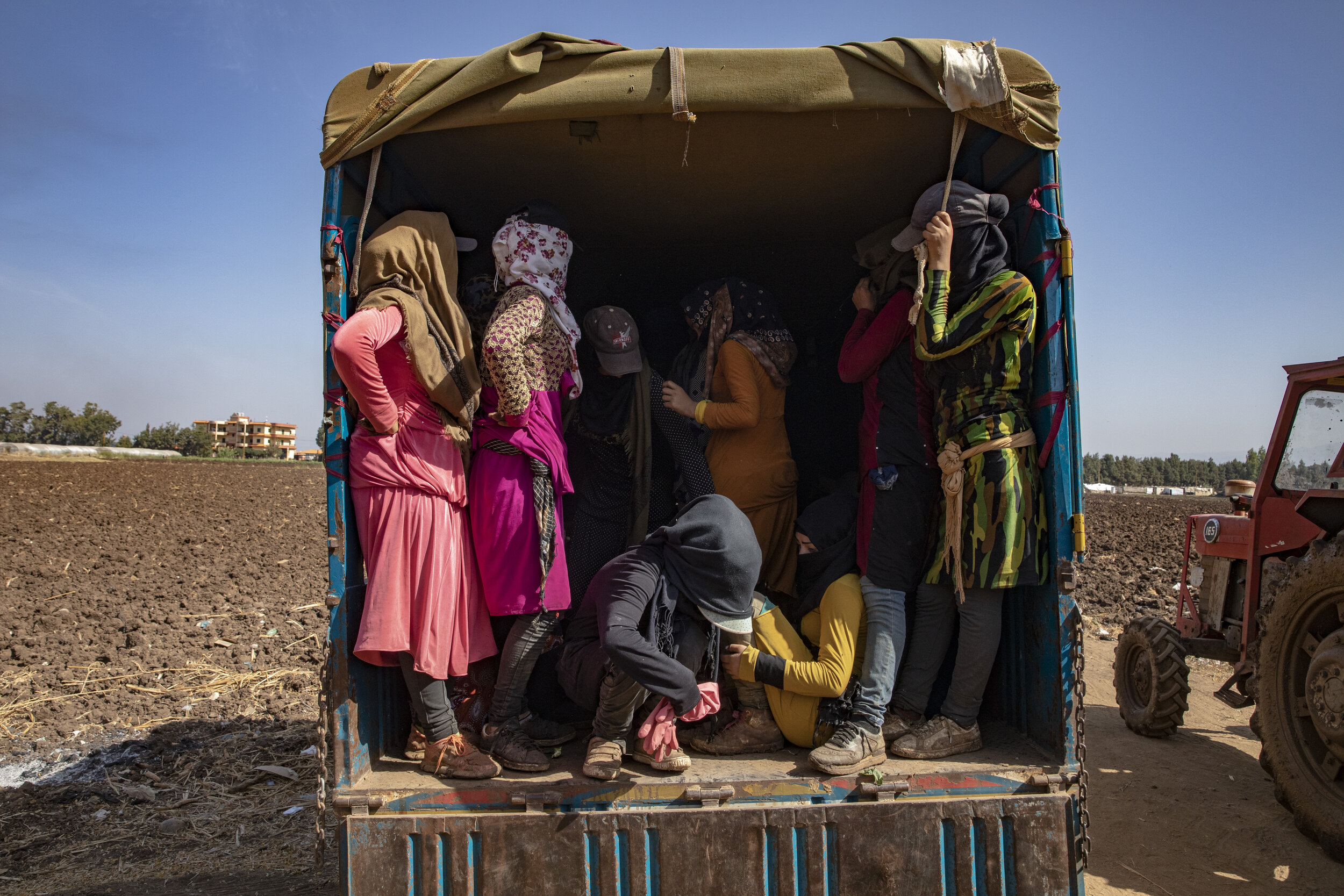
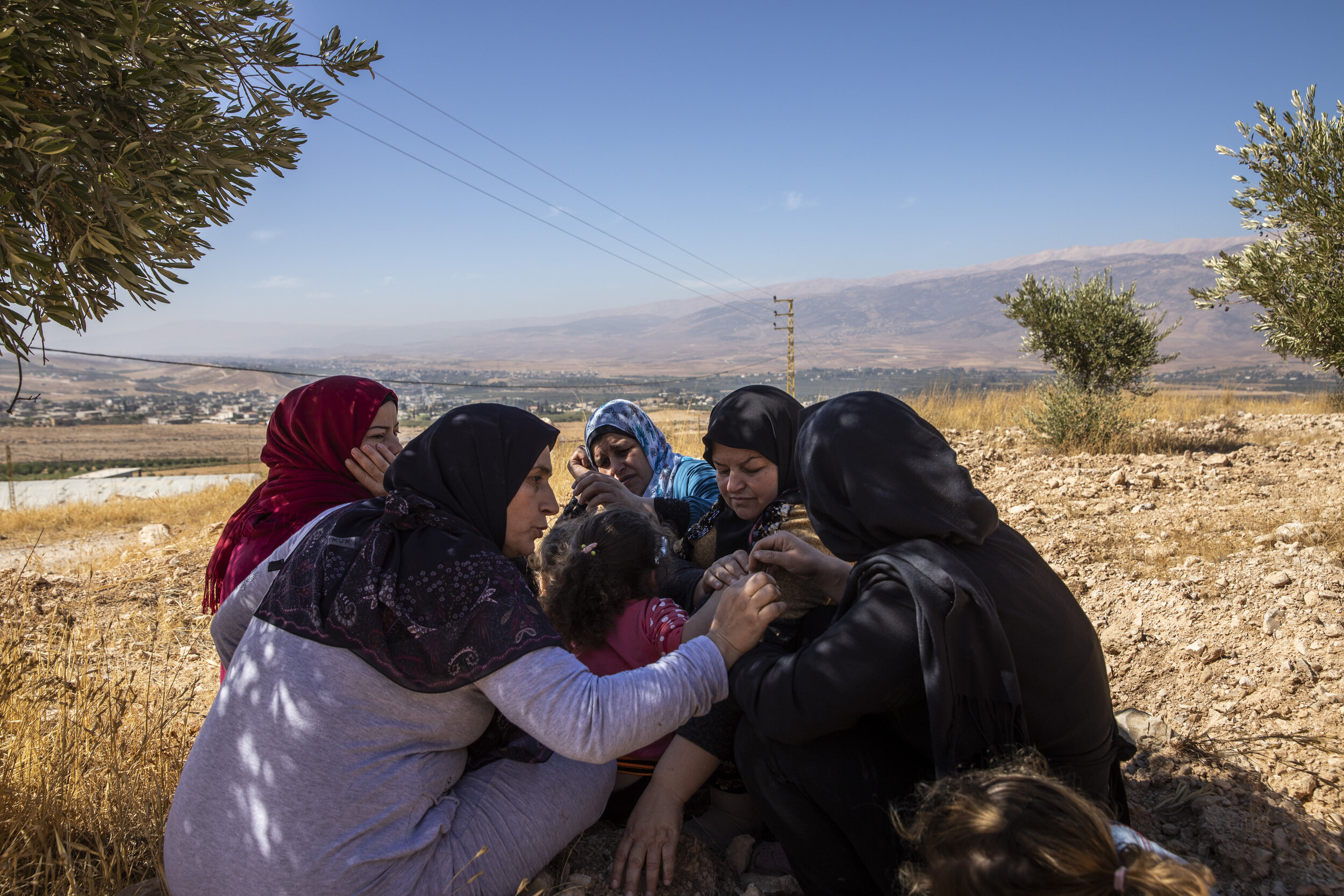
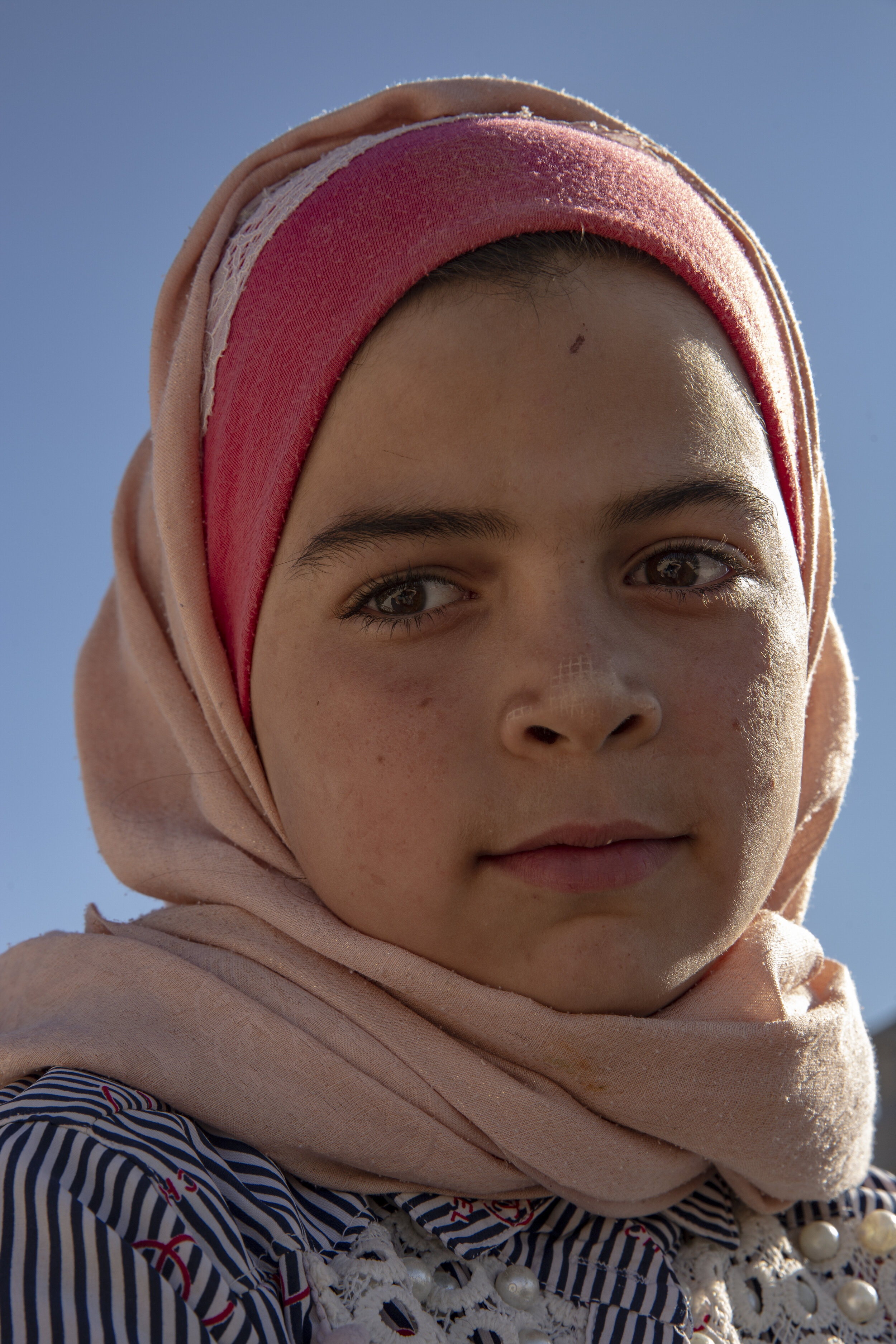
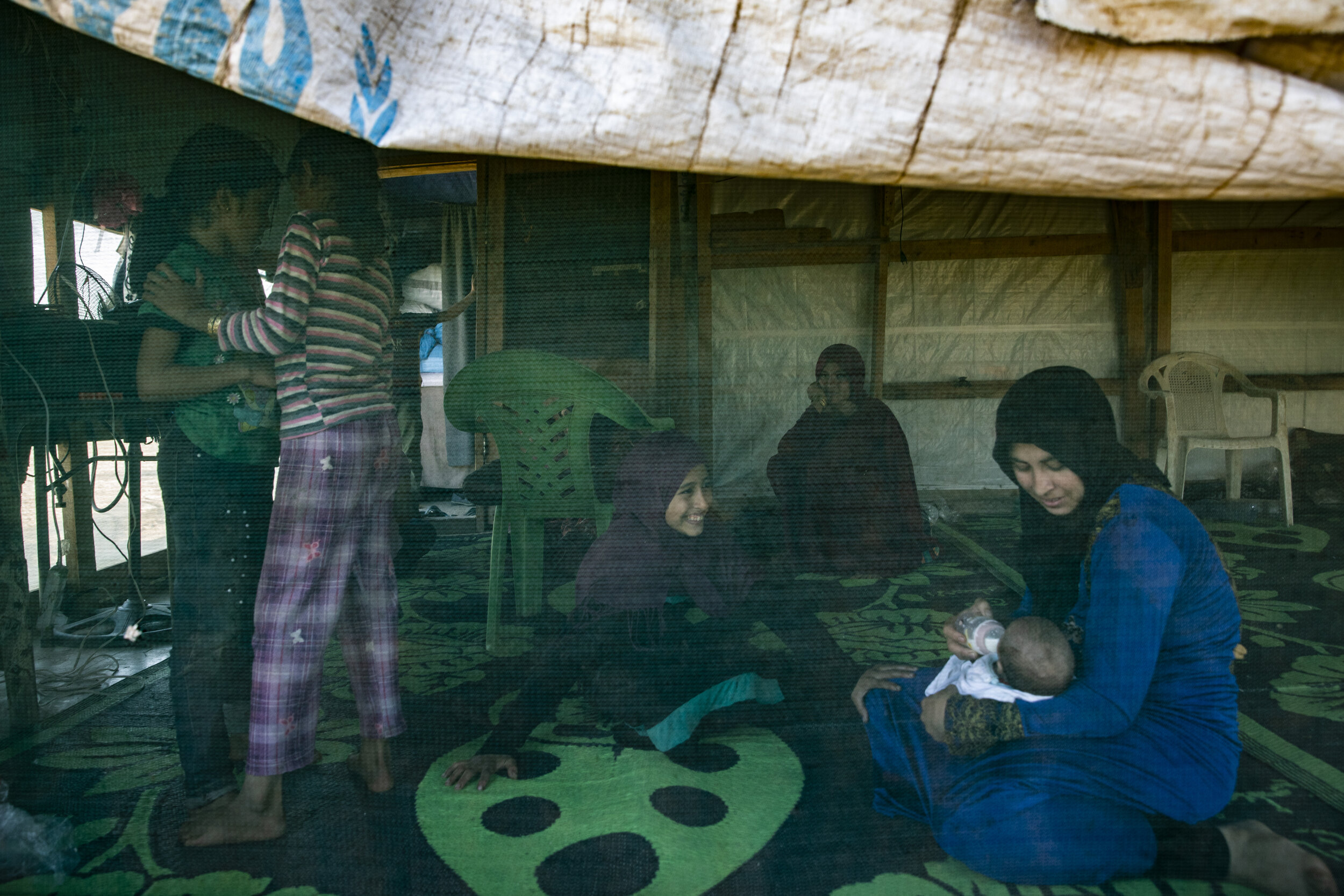
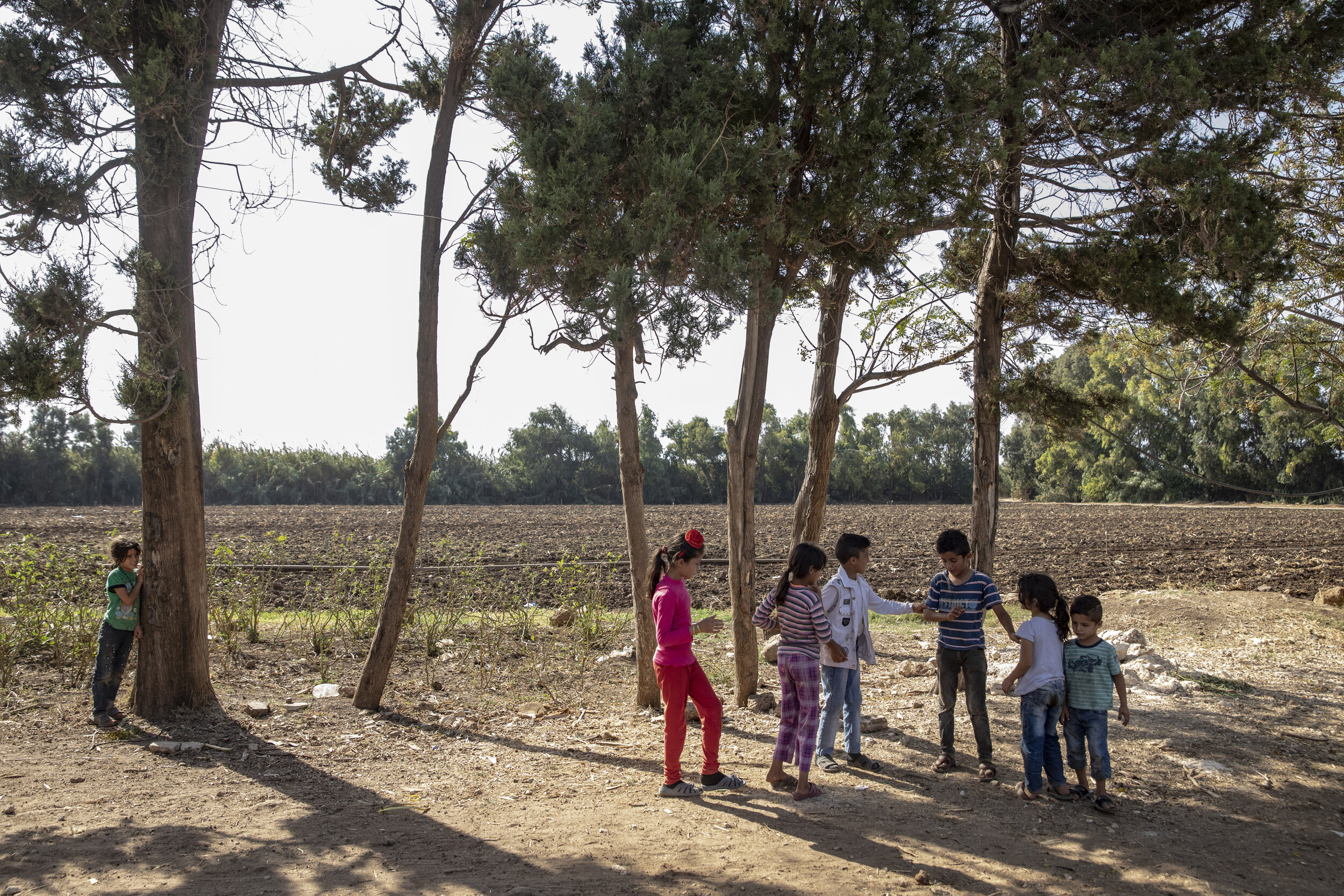
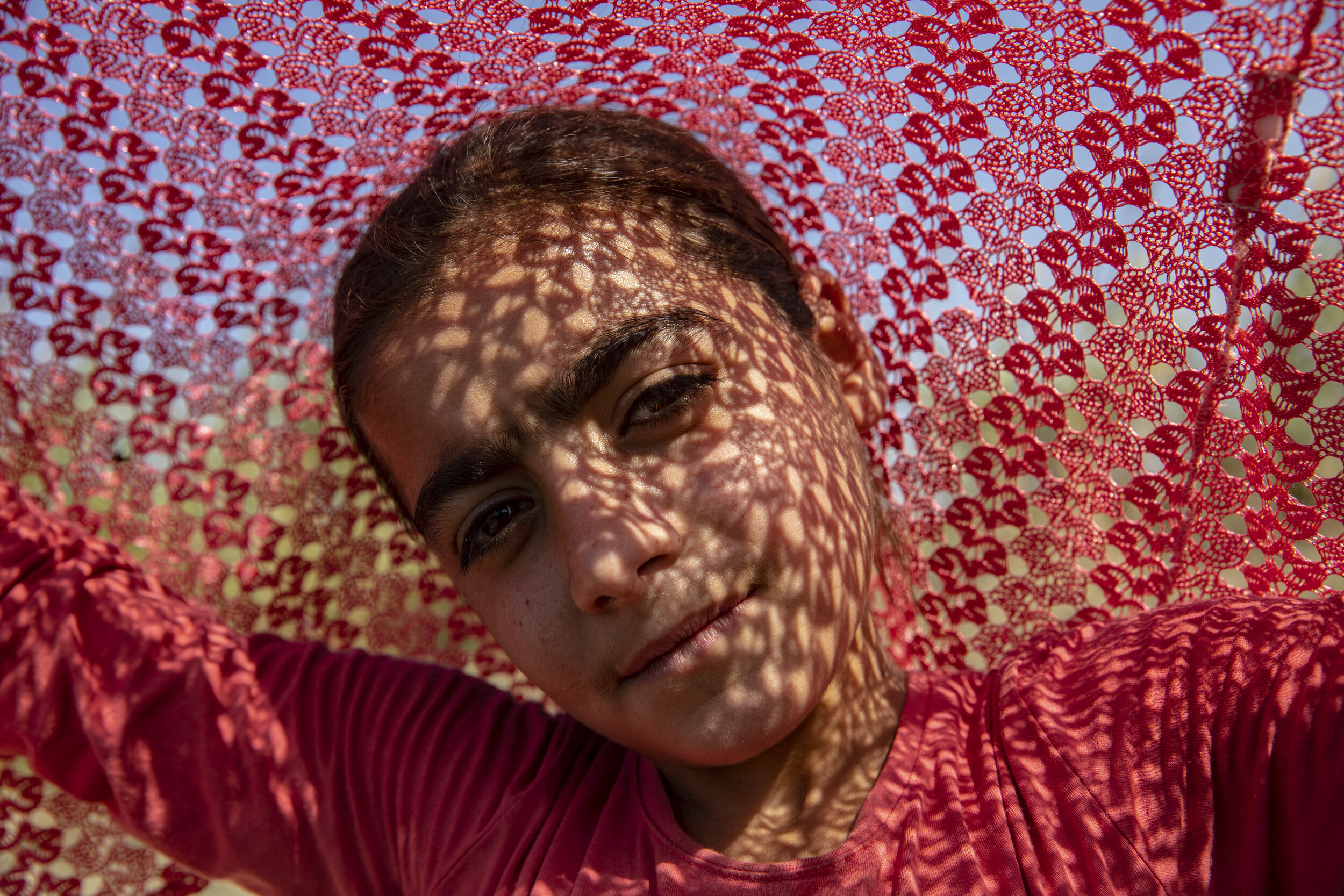
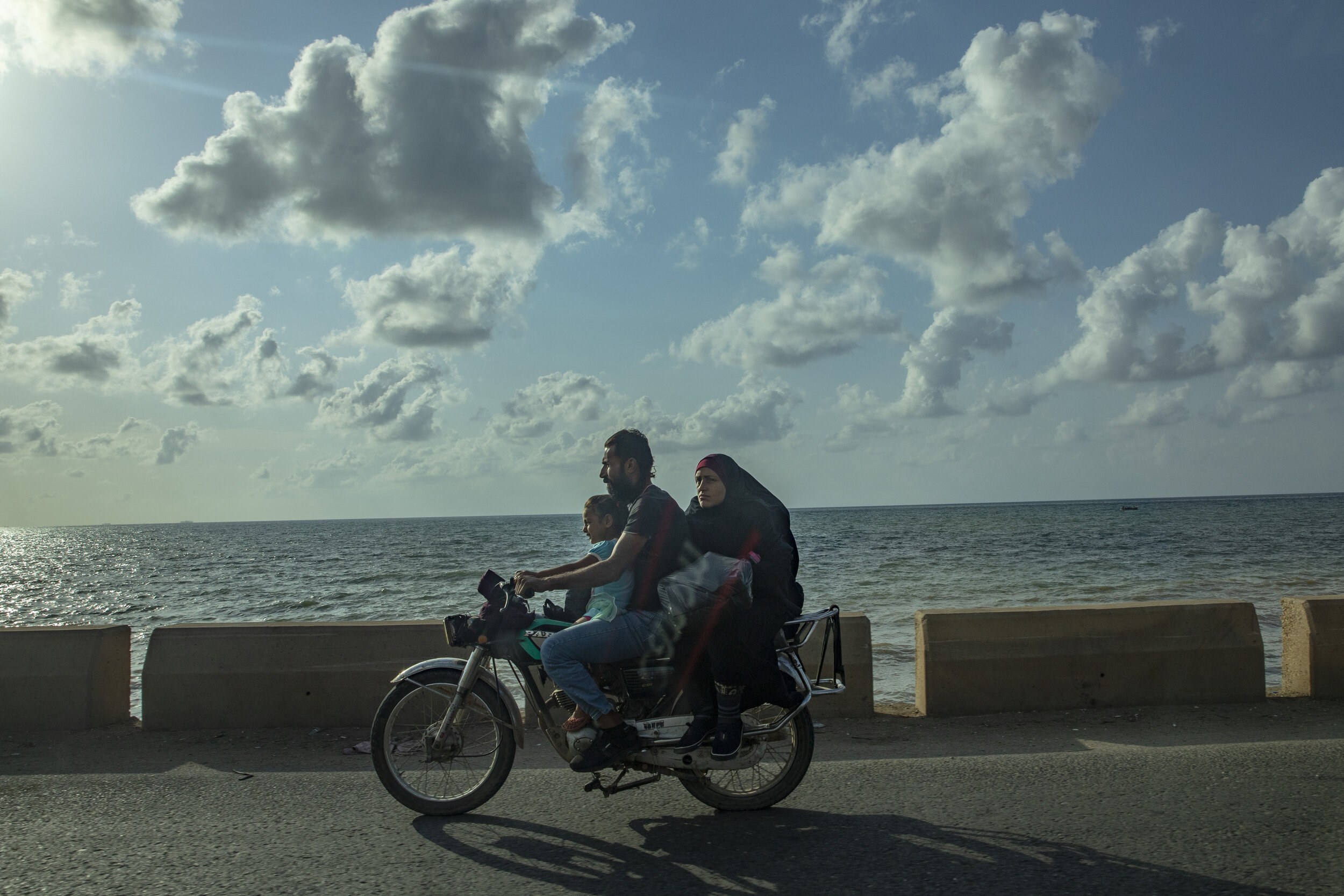
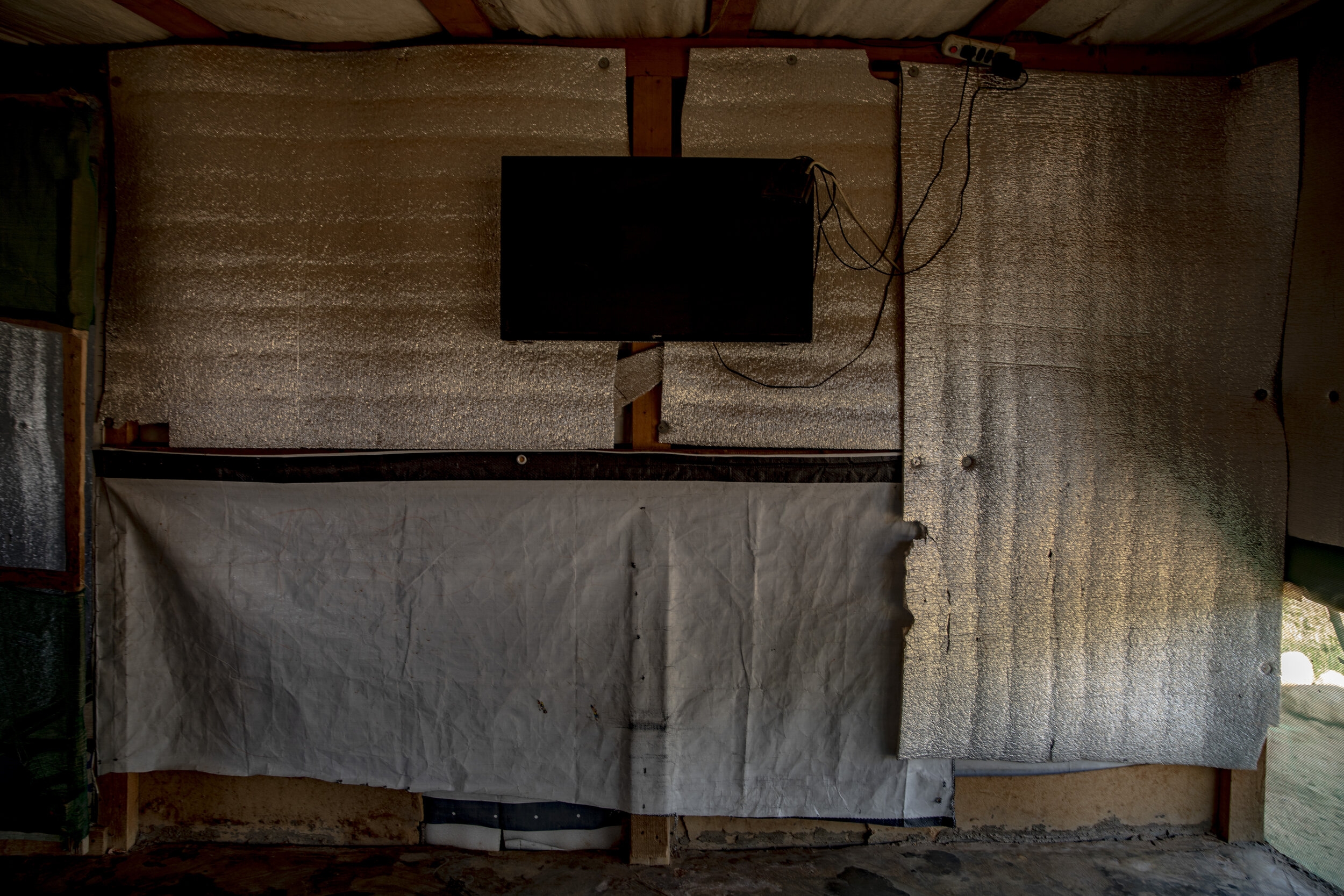
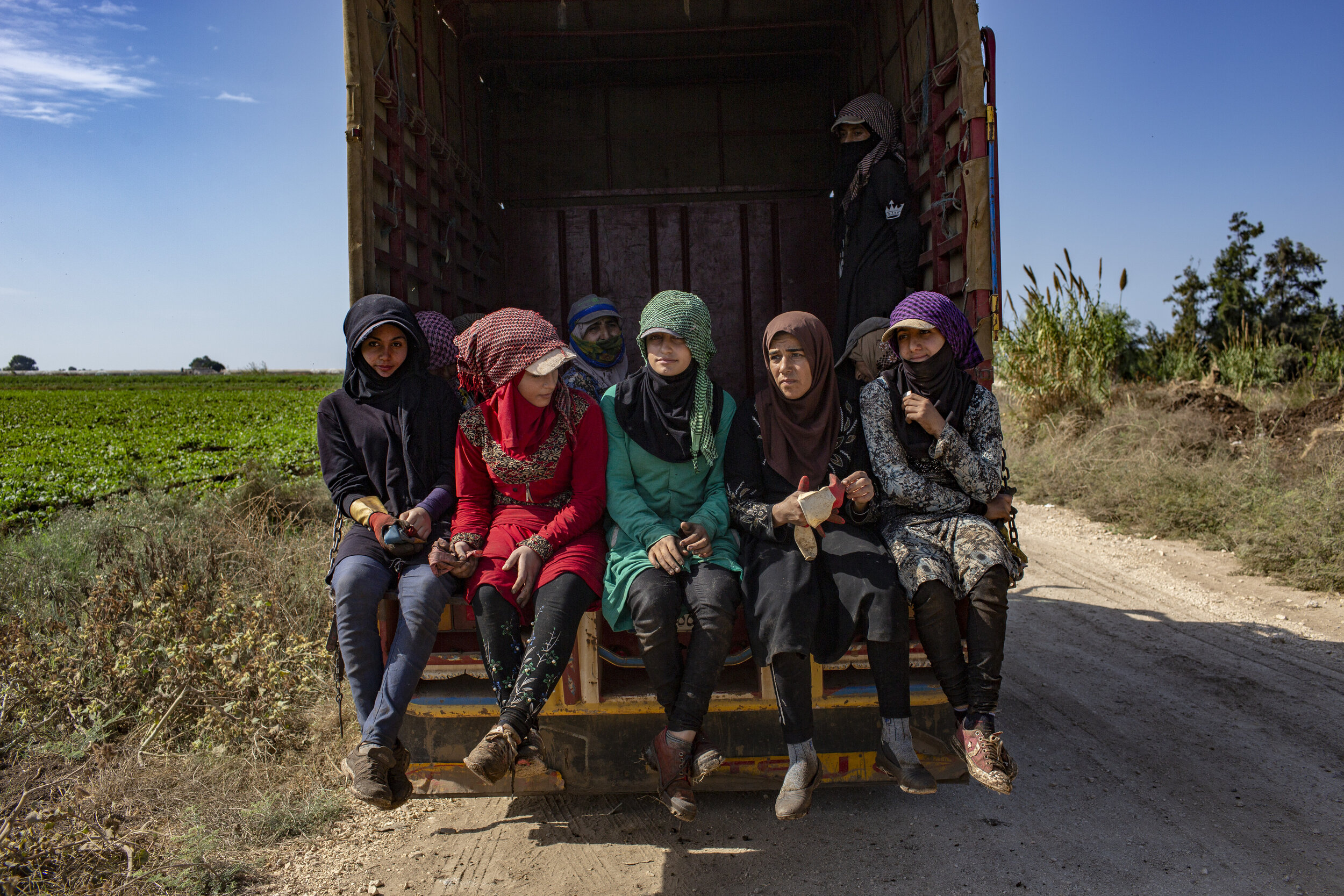
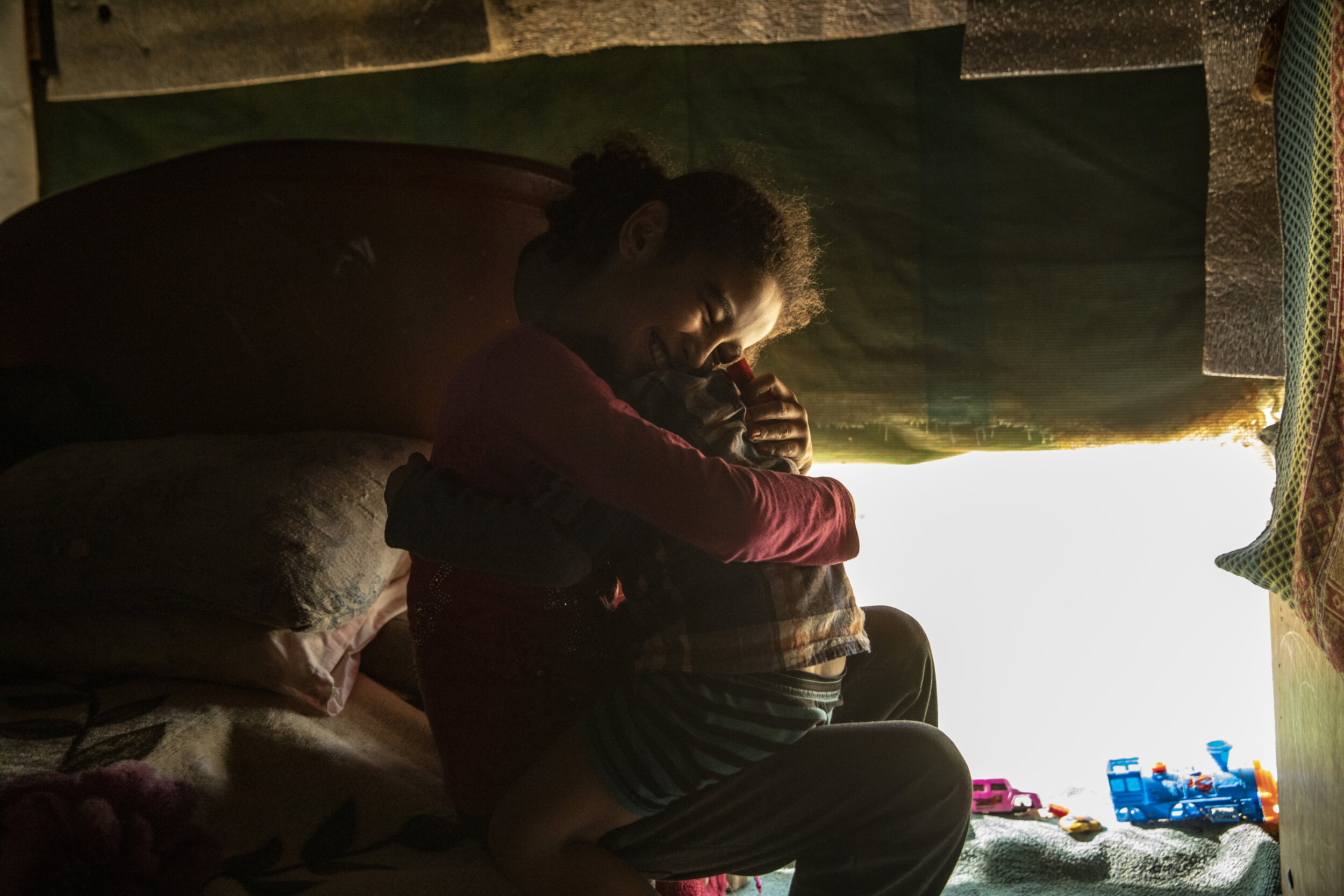
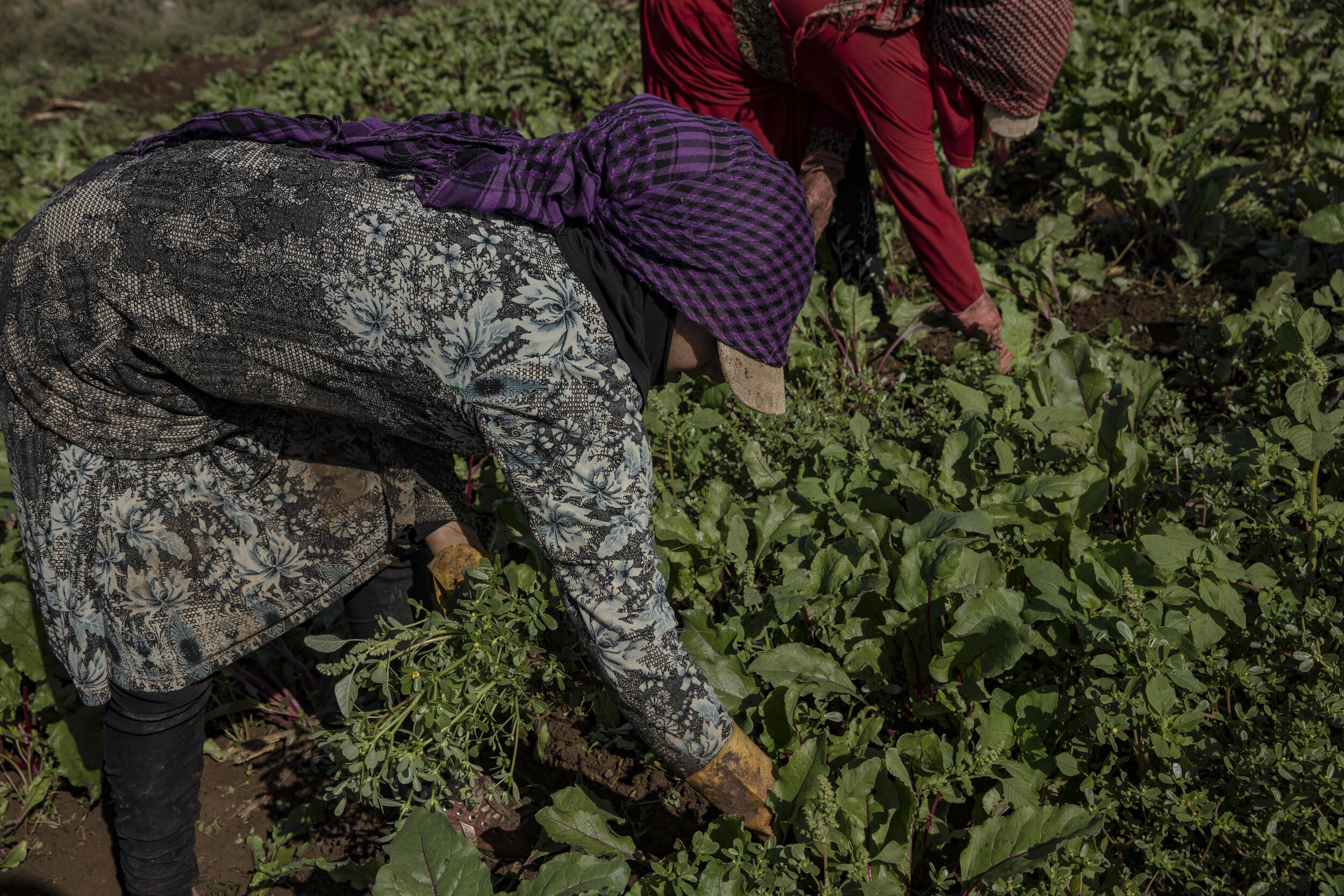

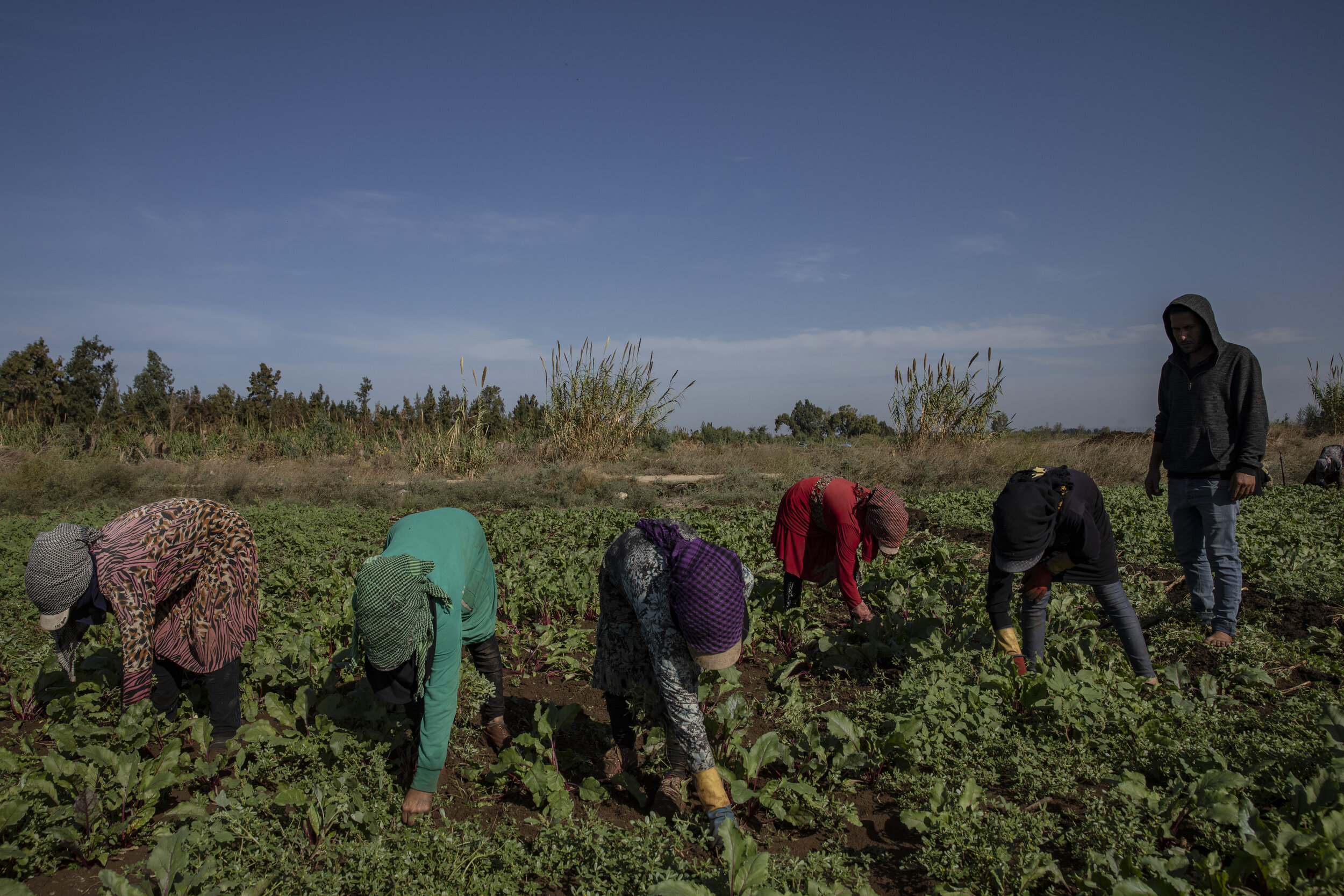
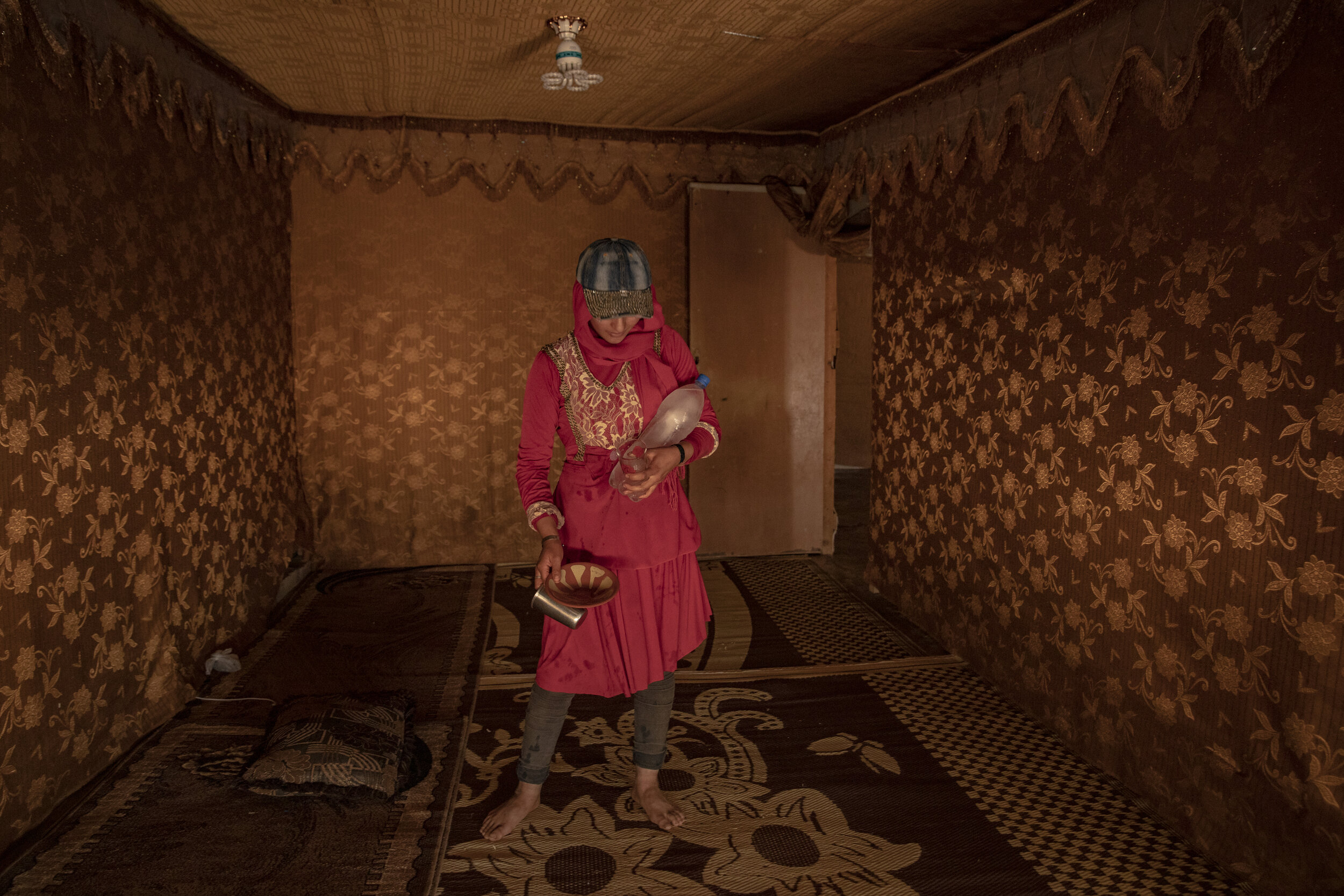

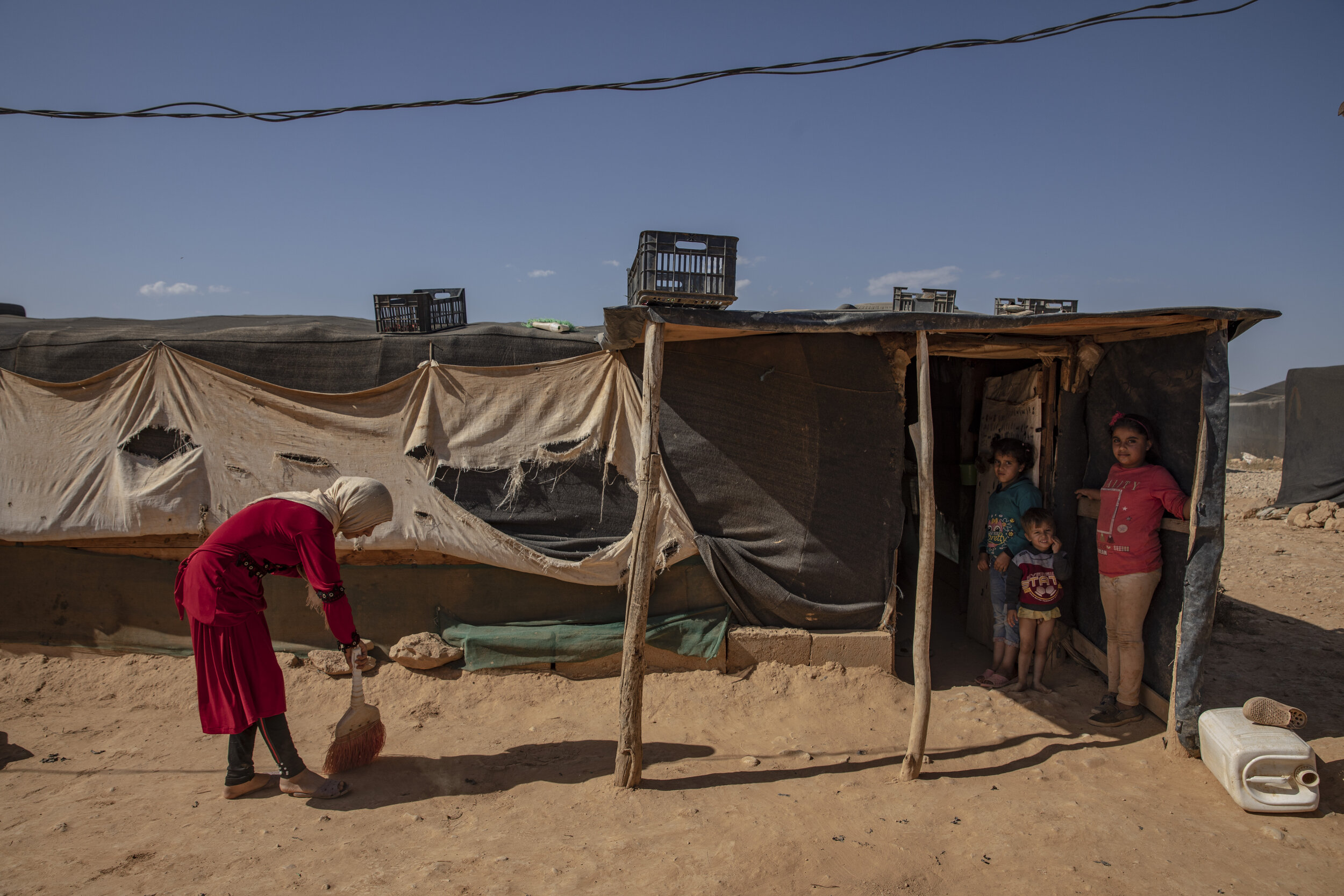
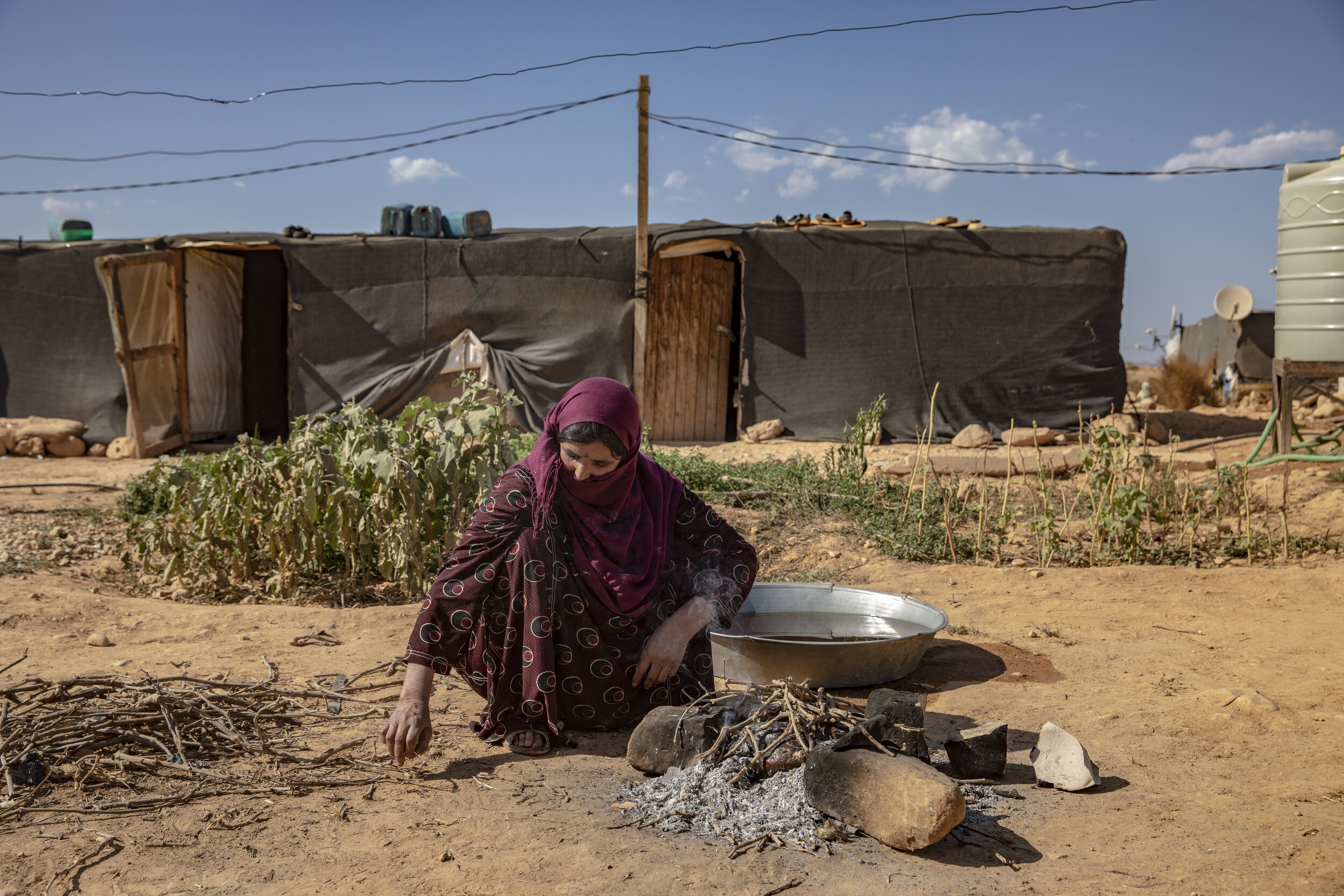
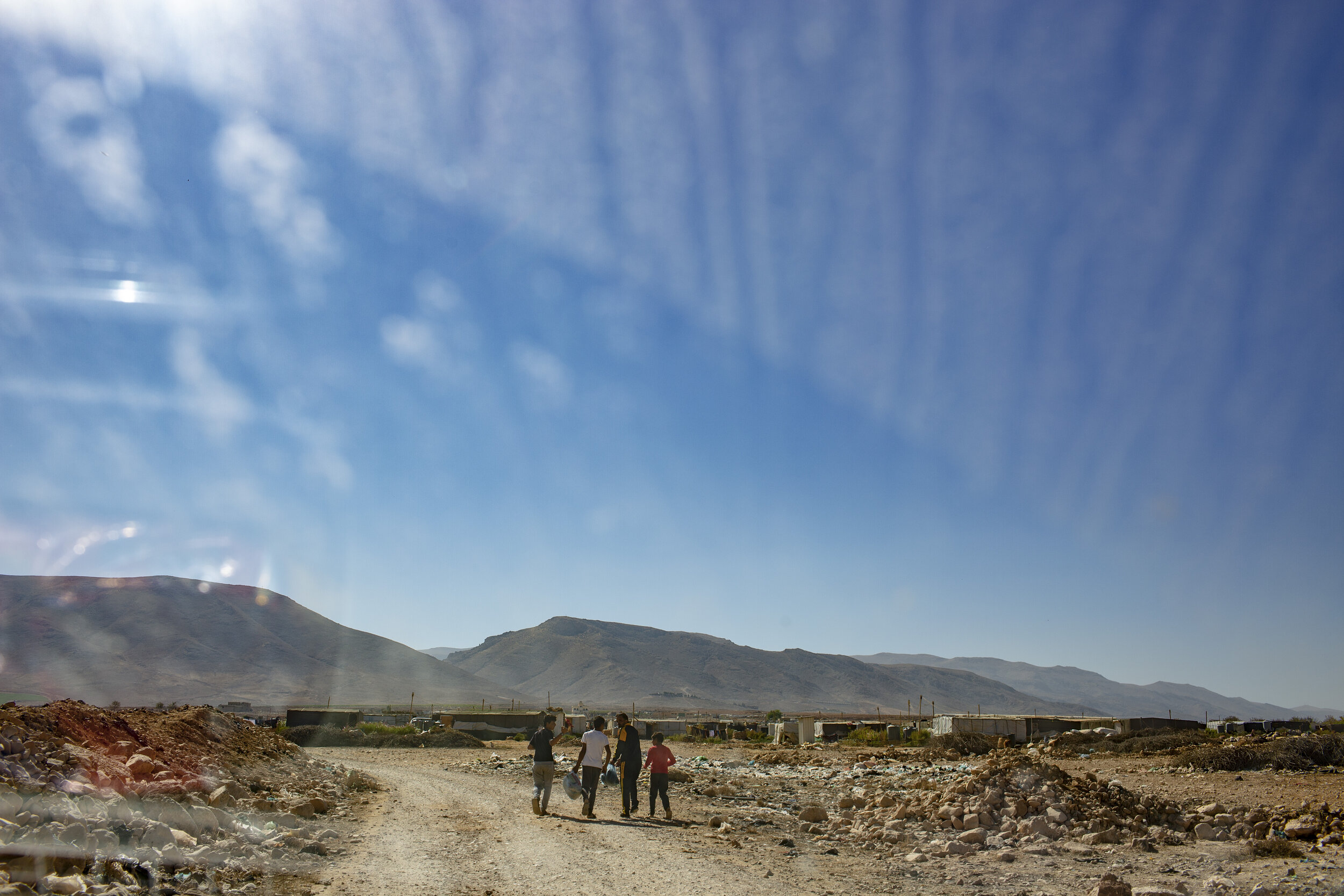















































ON “Der Freitag” (German Magazine)
for PBI . PEACE BRIGADES INTERNATIONAL , HONDURAS. 2017.
Emanuel de Jesús Barrientos Pavón, is 34 years old and he is from Tegucigalpa capital of Honduras. He is a member of the LGBT organisation Arcoiris, in this interview he talks about his decision to go back to his studies. Video produced by Francesca Volpi for PBI Honduras.
for “SUORE DOROTEE DI CEMMO”, DEMOCRATIC REPUBLIC OF CONGO, 2013.
for UNICEF, UKRAINE , 2015.
read more here:
https://www.unicef.org/ukraine/media_27694.htm







